Don't miss our updates



Every year on June 28th, the world bursts into color to celebrate International LGBT+ Pride Day — a date that brings visibility to diversity, promotes equality, and honors the freedom to love and be who you are. But beyond the celebration, it’s also the perfect moment to talk about a shared dream within the LGBT+ community: building a family. For many years, access to fertility treatments was limited for those who didn’t fit traditional models of motherhood or fatherhood. Today, that’s changed. There are now real, legal, and emotionally safe medical options for two women, two men, or a non-binary individual to fulfill their dream of having a baby. At Ingenes, we celebrate love in all its forms and are committed to providing solutions for all family configurations. That’s why in this blog, we share the alternatives available — and how we can walk with you on your journey to your baby. Options for Female Couples If you and your partner both identify as women, there are several options to achieve pregnancy: At Ingenes, the ROPA Method is carried out under a personalized protocol, with prior diagnosis, emotional support, and careful donor selection to ensure peace of mind at every stage. Options for Male Couples For two men who wish to become parents, the most viable treatment is: Surrogacy with Egg Donation One or both partners provide sperm, which is used to fertilize eggs from an anonymous donor. The resulting embryos are then transferred to a gestational carrier. Surrogacy allows at least one of the partners to have a genetic connection with the baby. You can choose to use both partners’ sperm for separate embryos or repeat the process at different times. At Ingenes, we work with legal agencies and clinics specialized in surrogacy to offer a complete, safe, and fully personalized solution for LGBT+ individuals and couples. Trans and Non-Binary People: It’s Also Possible At Ingenes, we also work with trans and non-binary individuals who want to preserve or use their fertility. Some available options include: Every body is different. Our mission is to respect your identity and offer you the right plan based on your decisions and reproductive health. What Makes Ingenes Different? We understand that building a family as an LGBT+ person can still involve social barriers, which is why we’re committed to creating a safe, inclusive, and professional space for your journey. Love Is Love… and Love Is Family Having a child isn’t a privilege — it’s a right. On International LGBT+ Pride Day, we want you to know that your desire to form a family is just as valid and powerful as anyone else’s. There’s no one way to be a mom or dad. The only essential ingredient is love and commitment. Whether you’re ready to get started or simply exploring your options, we’re here for you. Because your family deserves to exist, to grow, and to be celebrated.Want to know more? Message us or schedule your initial consultation. Our team is ready to guide you step by step toward your baby — with all the respect, knowledge, and care you deserve.

June 20th marks Yellow Day, known as the happiest day of the year. According to psychology experts, this date brings together several conditions that promote emotional well-being: pleasant temperatures, longer daylight hours, the proximity of vacation time, and an overall more positive atmosphere. But for those who’ve spent time yearning to become parents — facing treatments, negative results, or complex diagnoses — happiness can feel distant. At Ingenes, we’d like to invite you to see this day differently: what if today is the first day of the rest of your story? What Does Yellow Day Represent? The color yellow is associated with energy, light, joy, and new beginnings. It’s no coincidence that Yellow Day falls at the end of spring and the beginning of summer — a season when not only fields bloom, but also plans, dreams, and opportunities. What if, on this June 20th, you decided to take a step toward what you long for the most: having a baby? Yellow Day is an invitation to take that step you’ve been putting off — not because you don’t want it, but because fear, frustration, or uncertainty may have held you back. Happiness Can Also Mean Knowing You’re Doing Everything for Your Dream At Ingenes, we’ve heard thousands of stories. Some are filled with hope from the beginning. Others are marked by years of failed attempts, tough diagnoses, fertility cycles without results, or the feeling that time is running out and options are disappearing. But if there’s one thing we’ve learned, it’s that happiness can also mean choosing not to give up — seeking new alternatives, exploring what today’s science can do for you, and allowing yourself to believe again. Because motherhood and fatherhood don’t always arrive the way we planned. But that doesn’t mean they can’t arrive. A Date, a Reason to Start Again If you woke up today with doubt, fear, or the feeling that your attempts to have a baby haven’t worked… we want you to know: it’s normal to feel that way, and you’re far from alone. But we also want to remind you that you have options. Today, assisted reproduction treatments have advanced to the point where even women with low ovarian reserve, men with severe fertility issues, or same-sex couples have real chances of building a family. And if you’re not sure where to start, this Yellow Day might just be the small starting point that changes everything. What Makes Ingenes Different? At Ingenes, we’ve spent over 20 years helping make the dreams of thousands of families come true in Mexico and the United States. We don’t just perform treatments — we walk alongside you with a human, scientific, and emotional approach. Some of our key differentiators include: We want you to know you’re not alone. At Ingenes, we don’t just treat bodies — we care for emotions, stories, and hopes. Conclusion: This Yellow Day Could Be Just the Beginning Fertility isn’t measured only in eggs or sperm. It’s also measured in determination, hope, and decisions. Yellow Day is just a reminder that happiness may be found in the very next step you’re about to take. You might not have that baby in your arms yet. But maybe you already have the most important thing: the desire to keep going. At Ingenes, we’re here to walk with you, answer your questions, design a plan that fits you, and help you turn Yellow Day into more than just a date. Ready to take the next step? Schedule your initial consultation. Today might be the day your story as a mom or dad begins.

In June, we celebrate Father’s Month—a time not only to honor those already experiencing fatherhood, but also to shed light on a fundamental topic that often goes unnoticed: male reproductive health. As part of this celebration, it’s also essential to recognize men who wish to become fathers, regardless of their sexual orientation, marital status, or personal circumstances. Today, the desire to become a dad is just as valid as the desire to become a mom, and there are options to make that dream a reality. Talking About Fertility Is Also a Man’s Issue For years, fertility has been almost exclusively associated with women’s health. However, 40% of infertility cases are due to male factors, another 40% to female factors, and the remaining 20% to mixed or unknown causes. This means that half of the difficulties in having a child may be directly related to male reproductive health.Some of the most common issues include: Evaluating Male Fertility: A Necessary Step The good news is that many of these factors can be detected through simple tests such as a semen analysis, hormone tests, or genetic studies. These evaluations help assess sperm health and, together with a specialist, create a plan to increase the chances of achieving pregnancy.At Ingenes, fertility evaluations include both partners (when applicable) or are adapted to the needs of single patients or same-sex couples, recognizing the many ways to build a family. Being a Single Dad: A Valid and Possible Dream The desire to become a father doesn’t have to depend on being in a relationship. Many single men—both heterosexual and gay—decide they want to have a child and wonder: is it possible? The answer is yes.Thanks to advances in reproductive medicine and the legality of surrogacy in Mexico, single men can access a comprehensive treatment that includes: Fertility and Lifestyle: What Men Should Know In addition to medical causes, there are lifestyle habits that can directly impact male fertility: The Importance of Emotional Support Seeking reproductive help can be an emotionally charged process for men. Social pressure, stigma, and the lack of safe spaces to talk about male infertility make it harder for many to express their desire to become fathers or their frustrations.At Ingenes, we believe emotional support is just as important as medical treatment. We have specialists in reproductive psychology who help our patients process their emotions, resolve doubts, and make informed decisions with calm and empathy. This June, Let’s Celebrate the Possibility of Becoming a Dad During Father’s Month, we celebrate those who already have their children in their arms—and those who are still waiting with open hearts. Let’s talk about male infertility without fear, recognize the different paths to fatherhood, and bring science closer to those who still believe they’re out of options.Having a child is not a privilege—it’s a right. And at Ingenes, we work every day to make that right a reality for them, too.

Every year, during the third week of June, International Men’s Health Week is celebrated — a time to reflect on men’s physical, mental, and emotional well-being. This observance, created to raise awareness about health conditions that affect the male population, also invites us to talk about a topic often surrounded by myths and silence: male reproductive health. At Ingenes, we know that fertility isn’t a women-only issue. In 50% of infertility cases in couples, there is a male factor involved—either on its own or in combination with other issues. That’s why we believe this week is a key opportunity to break taboos, provide clear information, and open paths toward real solutions. Why Is It Important to Talk About Men’s Health? Traditionally, it’s been assumed that men don’t need to see a doctor unless there’s an obvious symptom. However, this culture of silence has led many health conditions — including those affecting fertility — to go undiagnosed or untreated. In particular, male reproductive health is one of the least explored areas, despite having a significant impact on the family-building goals of millions of people. In our experience, many men are unaware of: Common Causes of Male Infertility Male infertility can stem from various causes. The most common include: How Can a Man Know If He Has a Fertility Issue? The simplest way to begin evaluating male fertility is with a semen analysis. This test analyzes a semen sample and provides key information such as: If abnormalities are found, further tests can be done—such as hormonal panels, genetic screenings, or imaging—to determine the root cause. At Ingenes, we offer complete male fertility assessments, always guided by a team of assisted reproduction specialists. Male Fertility and Age: Does It Matter? While a woman’s age tends to get more attention, growing research confirms that a man’s age also plays a role in achieving a healthy pregnancy. As men age: Because of this, preserving male fertility can also be a valuable option in certain cases. Can Male Fertility Be Preserved? Yes. The most common method is sperm cryopreservation, which involves collecting and freezing a semen sample for future use. This can be especially useful for: At Ingenes, we have specialized sperm banks and offer safe, reliable, and accessible preservation protocols. Treatments for Men Diagnosed with Infertility The good news is that most cases of male infertility are treatable. Depending on the cause, the specialist may recommend: The Man’s Role on the Journey to Pregnancy Beyond medical aspects, it’s essential to understand that emotional health and male involvement are just as important in fertility treatments. At Ingenes, we encourage men to take an active role throughout the process, and we offer psychological support and emotional guidance. Many men go through this experience in silence. That’s why creating support networks and informative spaces like this blog is key to helping more people feel empowered to seek help. During International Men’s Health Week: Show Up for Yourself This week, we invite you to break the silence, prioritize your health, and learn about your fertility. Getting tested is not a sign of weakness — it’s a sign of commitment to your life and your dreams. If you’ve been trying to have a baby without success, if you’re unsure about your fertility, or if you want to take care of your long-term health… now is the time. Male reproductive health has been ignored for too long. International Men’s Health Week is the perfect reminder that fertility is also a men’s issue. At Ingenes, we’re here to support you, inform you, and provide real solutions. With advanced technology, medical expertise, and a comprehensive approach, we help you take the next step toward fatherhood. Taking care of yourself is part of building the future you dream of.

Every year on June 4, the world observes World Fertility Day, a date that seeks to raise awareness of the challenges millions of people face in trying to have a child, as well as to promote access to information, support, and real medical solutions for those who want to build a family. At Ingenes, this day is more than just a symbolic commemoration. It’s an opportunity to speak openly about a topic that still carries stigma, silence, and misinformation. It’s also a moment to remember that there is hope, there are options, and that every story deserves to be treated with respect, science, and empathy. Fertility is health, too For years, fertility has been treated as a secondary issue in reproductive health. However, the World Health Organization (WHO) has recognized infertility as a medical condition that affects at least 1 in 6 people worldwide. Talking about fertility means talking about physical, hormonal, emotional, and social health. And this applies to both women and men. Infertility is not just a “female” issue; in fact, causes are typically divided into: That’s why a complete fertility assessment should include both partners (when applicable) to offer an accurate diagnosis and personalized treatment. What do we mean by infertility? Infertility is defined as when a person or couple has been trying to conceive for more than 12 months without success. For women over the age of 35, this period is reduced to 6 months, since ovarian reserve may be more compromised. There are different types of infertility: Each type of infertility requires a different approach—this is where reproductive medicine can truly make a difference. Why do we observe World Fertility Day? This day serves several purposes: At Ingenes, we proudly join this initiative because we know what it means to wait, to try, to feel frustrated, and to believe again. With over 20 years of experience, we’ve supported thousands of people who once believed there was no path forward—until they discovered there was. Common causes of infertility World Fertility Day is also an important opportunity to educate and inform about the factors that can make conception more difficult. Some of the most common causes include: In women: In men: Other key factors include stress, being overweight, smoking, excessive alcohol consumption, exposure to toxins, and certain medical treatments (like chemotherapy). When should you seek help? Many people delay visiting a fertility clinic out of fear, lack of knowledge, or stigma. However, the sooner an evaluation is done, the better the chances of success. You should consider seeing a specialist if: Available treatment options At Ingenes, we offer a wide range of assisted reproduction treatments, tailored to each person’s needs. These include: Every story is different, and every treatment must be unique. There are no one-size-fits-all solutions, but there are viable, effective, and scientifically backed options. Fertility is also emotional health One of the greatest lessons we’ve learned on this journey is that fertility cannot be treated with science alone. It must include emotional support, psychological understanding, and a human approach that sees the pain of waiting, the fear of failure, and the deep desire to have a child. At Ingenes, emotional support is integrated into all of our programs, because we know that no body can fully heal if the heart and mind are not cared for as well. What do we do at Ingenes on World Fertility Day? Each year, on this day: And most importantly, we reaffirm our commitment to never give up, because every attempt is worth it, every dream matters, and every baby born at Ingenes is a story of science, love, and perseverance. Conclusion: Today, we celebrate possibility World Fertility Day is more than just a date. It’s a reminder that you are not alone. That asking for help is not giving up, but taking control. That there are thousands of people in your same situation. And that real solutions exist—with real results. At Ingenes, we’re ready to listen to you, to understand your story, and to offer a plan that fits your dreams, your timeline, and your body. Because the desire to have a child is valid, legitimate, and deeply human. Today, more than ever, we celebrate fertility as a right—and as a hope. Schedule your appointment. Your story can start today.

Infertility is a multifactorial condition that affects millions of people around the world. Among the most well-known causes are hormonal imbalances, structural abnormalities of the reproductive system, or low-quality eggs and sperm. However, there is a lesser-explored but equally relevant component: the immunological factor in infertility. In this blog post, we explain what the immunological factor is, how it can interfere with the reproductive process, what its symptoms and diagnostic options are, and most importantly, what treatments exist to address it and increase the chances of a successful pregnancy. The Immune System and Fertility: A Delicate Relationship The immune system is designed to protect the body against foreign agents such as viruses, bacteria, or toxins. However, in some cases, this system can react inappropriately and attack elements that do not represent a real threat, including components of the reproductive system. In human reproduction, the embryo shares genetic material with the father, making it partially “foreign” to the maternal body. That’s why the woman’s immune system must “tolerate” the embryo during implantation and pregnancy. When this tolerance does not occur properly, an immune response may be triggered that prevents conception or causes recurrent miscarriages. What Is the Immunological Factor in Infertility? The immunological factor in infertility refers to a series of immune system disorders that interfere with the processes of fertilization, implantation, or embryo development. There are different types of immunological alterations that can affect fertility: 1. Presence of Antiphospholipid Antibodies These antibodies attack the phospholipids of cell membranes, including those of the embryo or placenta. They are associated with recurrent spontaneous miscarriages and implantation failures. 2. Overactive Natural Killer (NK) Cells NK cells are designed to destroy abnormal or infected cells, but in some cases, they may attack the embryo or affect implantation if present in elevated numbers or with high cytotoxic activity. 3. Autoimmune Diseases Conditions such as systemic lupus erythematosus or autoimmune thyroid disease can disrupt the immune balance needed for conception and pregnancy. 4. Immunological Incompatibility Between the Couple Although less common, some studies suggest that certain pairs of highly similar HLA genes between partners may hinder implantation due to a lack of necessary “tolerance” immune signals. When to Suspect an Immunological Factor? Not all infertility cases are related to immune problems, but there are specific situations in which it is recommended to evaluate this possibility: Diagnosing the Immunological Factor in Infertility Diagnosis should be carried out by specialists in reproductive immunology and fertility. Some tests that may be ordered include: Treatment for the Immunological Factor in Infertility Once an immunological factor is detected, personalized treatments can be applied to modulate the immune response without compromising the patient’s overall health. 1. Immunotherapy with Corticosteroids Drugs like prednisone can reduce excessive immune activity, especially in women with high NK cell levels or autoimmune diseases. 2. Heparin and Aspirin Used to treat antiphospholipid syndrome and reduce the risk of thrombosis and embryo loss. 3. Intravenous Immunoglobulins (IVIG) These modulate the immune system to prevent it from attacking the embryo. Used in severe cases or those with a history of multiple failures. 4. Intralipids A more accessible alternative to IVIG. These lipid emulsions help decrease NK cell activity. 5. Embryo Transfer During the “Immune Window” Endometrial analysis identifies the ideal time for embryo implantation, reducing the chance of immune rejection. The Importance of a Multidisciplinary Approach At Ingenes, we approach each infertility case comprehensively, including immunological evaluation when clinical history suggests it. Our team includes specialists in immunology, gynecology, embryology, and reproductive psychology, allowing us to create a completely personalized treatment plan. Conclusion The immunological factor in infertility represents one of the most complex challenges, but also one of the most treatable with the right approach. With the support of a specialized center and the correct treatment, many people are able to fulfill their dream of having a child. If you’ve experienced unexplained pregnancy losses or if previous treatments haven’t worked, it may be time to evaluate the immunological component. At Ingenes, we’re here to listen to you, understand your story, and help you achieve what you long for most: your baby.

Every May 28, the world comes together to commemorate the International Day of Action for Women’s Health, a date that not only sheds light on the medical inequalities many women face, but also demands their right to comprehensive, dignified, scientific, and empathetic care. At Ingenes, this date is not just a symbolic commemoration—it represents our daily commitment to every woman who walks through our doors seeking an opportunity, an answer, or a new beginning. It is a chance to reaffirm that reproductive health is health, and that every story deserves to be treated with humanity and knowledge. Comprehensive Health: Beyond a Diagnosis Talking about women’s health cannot be limited to statistics, clinical studies, or medical treatments. It means recognizing the individual story behind each patient, her emotional context, her fears, and her desires. The Emotional Weight That Can’t Be Seen Many women arrive at consultations carrying years of frustration, unanswered questions, or poorly communicated diagnoses. Some have been ignored, others have received inadequate treatments, or have simply been treated as numbers within a protocol. At Ingenes, we firmly believe that comprehensive health begins with listening without judgment, validating every emotion, and building a medical plan based on trust. Because the body and mind are deeply connected, and no treatment can fully succeed without considering the emotional well-being of the patient. Reproductive Health Is Also Women’s Health Access to fertility and assisted reproduction services should not be seen as a luxury or a privilege for a few. It is an essential part of a woman’s health and reproductive autonomy. Realities That Deserve Visibility Women with polycystic ovary syndrome (PCOS) who have been underestimated for years.Patients facing endometriosis who’ve had to hear that their pain is “normal.”Cancer survivors who lost their fertility without knowing there were options to preserve it.Single women who want to start a family without a partner.Same-sex female couples seeking access to methods like ROPA without being questioned. All these stories are part of daily life at Ingenes. And all of them deserve to be heard, cared for, and supported with science and respect. Infertility: A Medical Condition, Not a Fault In the context of this day, it is also urgent to continue demystifying infertility. It is not a sentence, a punishment, or something to be ashamed of. It is a treatable medical condition that can have multiple causes, many of which are preventable or manageable with the right approach. Infertility affects at least 1 in 6 people worldwide according to the WHO. Yet many women still face it in silence, for fear of being judged or because they feel they must carry the responsibility of the process alone. Technology and Support: When Science Is on Your Side In our 20 years of experience, we’ve learned that reproductive health is not just about achieving pregnancy, but about doing it in an informed, safe, and emotionally supported way. At Ingenes, every patient receives a personalized plan that includes: Complex Cases, Real Solutions Our experience with women who have undergone failed treatments at other centers, with premature ovarian failure, low ovarian reserve, or oncological history, has taught us that the combination of science and empathy transforms realities. Today We Celebrate Your Right to Choose This May 28, we raise our voices for all the women who have been ignored, underestimated, or misdiagnosed. For those who’ve had to explain more than once their decision to become mothers… or not to. Because the right to decide over one’s own body also includes motherhood, when it comes from a deep desire and not social pressure. Every Path Is Valid If you want to wait, freeze your eggs, and go through other life stages first—you have the right.If you want to start a family without a partner—you have the right.If you’ve been trying for years and still haven’t lost hope—you deserve support and real solutions. What We Do at Ingenes to Care for Every Woman’s Health This International Day of Action for Women’s Health is also an opportunity to share what we do at Ingenes as part of our commitment: Conclusion: For You, for All Women’s health must be addressed with an integral, respectful, and empathetic approach. Because it’s not just about diagnoses—it’s about life decisions. Because the most effective medicine is the one that understands that the female body is not a machine, but a living story that deserves to be understood. At Ingenes, we are with you every step of the way. Not just as a fertility institute, but as a safe, reliable, and human space.Today we celebrate your right to be heard, supported, and respected. And we always will.

Every May 28, Nutrition Day is celebrated—a key date to reflect on the relationship between the food we eat and our health. Although we often associate nutrition with weight, energy, or the prevention of chronic diseases, we rarely talk about its fundamental role in fertility. In this blog post, we’ll explain how proper nutrition can improve your chances of achieving pregnancy, why at Ingenes we consider this aspect an essential part of every treatment, and what changes can make a difference when you’re trying to have a baby. Why does nutrition matter when we talk about fertility? Fertility doesn’t depend solely on the reproductive system. In fact, the ability to conceive is influenced by many other factors, including diet. The nutrients we consume directly affect hormonal function, the quality of eggs and sperm, uterine health, and metabolic balance. That’s why a poor diet can contribute to issues like polycystic ovary syndrome (PCOS), premature ovarian failure, hormonal imbalances, and ovulation disorders. In men, poor nutrition also impacts sperm quality, affecting motility, concentration, and morphology. What nutrients are related to fertility? 1. Folic Acid It’s not only important during pregnancy. Folic acid contributes to egg maturation and helps prevent neural tube defects in the baby. It also improves sperm quality.Sources: spinach, lentils, broccoli, avocado, fortified cereals. 2. Zinc In men, zinc is essential for sperm production. In women, it helps regulate the menstrual cycle and maintain hormone levels.Sources: lean meats, seafood, pumpkin seeds, nuts. 3. Omega-3 Helps reduce inflammation, improves uterine health, and supports ovulation. In men, it enhances sperm motility.Sources: fatty fish (salmon, sardines), nuts, flaxseed. 4. Iron An iron deficiency can alter ovulation. It’s crucial during pregnancy to prevent anemia.Sources: red meat, legumes, spinach, whole grains. 5. Antioxidants (vitamin C, E, and selenium) They help protect eggs and sperm from oxidative stress, a factor that deteriorates reproductive quality.Sources: citrus fruits, berries, peppers, almonds, sunflower seeds. How does a poor diet affect fertility? A diet high in sugar, saturated fats, processed foods, or low in essential nutrients can have multiple negative effects: At Ingenes, we evaluate each of these factors before starting any treatment. Nutrition and assisted reproductive treatments: is there an ideal diet? There is no one-size-fits-all diet, but there are nutritional recommendations adapted to the goal of conceiving. In patients undergoing in vitro fertilization (IVF), for example, diet can: Our specialists recommend, as a base, an approach similar to the Mediterranean diet: rich in fruits, vegetables, lean proteins, whole grains, and healthy fats. What if I have PCOS or another condition related to infertility? In women with polycystic ovary syndrome, insulin resistance, hypothyroidism, or endometriosis, diet must be even more carefully controlled. PCOS It’s recommended to avoid glucose spikes, reduce refined carbohydrates, and prioritize low-glycemic index foods. Endometriosis Anti-inflammatory foods like fish, turmeric, ginger, and leafy greens can help manage symptoms. Hypothyroidism Iodine, selenium, and vitamin D are key. Foods that interfere with thyroid function should be avoided unless well cooked (like soy or excessive broccoli). Nutrition is also male fertility Forty percent of infertility cases involve male factors. A man’s diet matters too—especially if he’s going to be part of an IVF or artificial insemination treatment. A balanced diet improves: Avoiding alcohol, tobacco, processed meats, and fried foods is a basic step. In contrast, a diet rich in antioxidants can protect genetic material. What do we do at Ingenes to support your nutrition? At Ingenes, we understand that nutrition is part of the fertility treatment—not an external factor. That’s why: Nutrition Day: an opportunity to act May 28 is a reminder that nutrition affects much more than what we see in the mirror. It can be the difference between a successful treatment and a frustrating one. It can be the first step to achieving a healthy pregnancy. Taking care of your nutrition doesn’t mean going on a diet—it means nourishing your body with the nutrients it needs to be ready… and fertile. Conclusion: Nourishing the body to give life At Ingenes, we celebrate Nutrition Day by recognizing the power that food has over our bodies, our hormones, and our dreams. If you’re trying to have a baby, scheduling an appointment with our specialists is the first step toward finding the right plan for you. Science and nutrition are on your side. And at Ingenes, so are we.

Happy Mother’s Day! To those who already hold their baby and to those still waiting Some stories move us deeply. Stories of courage, difficult decisions, and boundless love for someone who hasn’t arrived yet, but is already part of the heart. At Ingenes, for 20 years, we’ve had the privilege of walking alongside thousands of women on this journey—women who never gave up, who tried everything, and who today, on Mother’s Day, hold their babies close… or hold on tightly to the hope of one. This blog is a tribute to them. To those who have already heard that first heartbeat, and to those who are still fighting for it. Because being a mom doesn’t always begin with a positive test—it begins with a decision: to do everything possible to meet the baby you already love. Here we’ve gathered five real stories from women who faced difficult diagnoses, complex treatments, and many moments of uncertainty. Women who, thanks to their strength—and a personalized, compassionate and science-backed approach—turned a “this isn’t possible” into “my baby is here.” Two moms, one heartbeat: the power of the ROPA Method After eight years together, this couple knew it was time to grow their family. As they researched options, they discovered the ROPA Method—a treatment that allowed both of them to be biologically involved in having a baby. While their first attempts didn’t work, everything changed when they came to Ingenes. With a diagnosis of polycystic ovary syndrome (PCOS) and the support of a multi-cycle refund program, they started their journey. The first cycle didn’t succeed, but during the second one, they heard their baby’s heartbeat for the first time. Today, their child grows up surrounded by the love of two brave mothers who overcame fear and prejudice. “Family doesn’t have just one definition—what matters is the love you give, and we give it all.” Despite endometriosis, she found hope For years, she endured endometriosis, the loss of an ovary, and multiple surgeries. Every step seemed to take her further from her dream of becoming a mother. Failed treatments and the weight of infertility deeply affected her life—even her marriage collapsed under the emotional strain. It was her mother who first told her about Ingenes. There, she not only received a clear diagnosis—PCOS—but finally felt seen and supported. Her treatment was customized from the start, and soon after, she got a positive pregnancy test… with a double surprise! She now embraces her twins and is grateful every day that she never gave up. “They chose me, and I found the right path to reach them. Miracles do exist—sometimes they come in pairs.” Retroverted uterus, 39 years old, and one truth: it’s possible At 39, with a retroverted uterus and several failed attempts behind them, she and her husband came to Ingenes. A retroverted uterus—a condition present in up to 30% of women—usually doesn’t prevent pregnancy but can be linked to other factors that do. They chose a multi-cycle In Vitro Fertilization (IVF) program, knowing the physical and emotional toll it would take. Throughout the process, they faced uncertainty and fear, but also deep connection and mutual support. Her husband reminded her of her inner strength and that of the women in her family, giving her the courage to keep going. On their first attempt, they got pregnant. Seeing their baby on the ultrasound for the first time was indescribable. The day their baby was born was the peak of a long journey—filled with love, gratitude, and certainty that it had all been worth it. Ovarian cysts didn’t stop her from becoming a mom After losing her first pregnancy and spending over a decade visiting doctors, receiving hormone treatments, and hearing vague diagnoses, she began to believe motherhood wasn’t in her future. Exhausted and disheartened, she came to Ingenes as a last resort. It was there that she finally received a clear diagnosis: severe PCOS, with multiple cysts preventing her from ovulating. “For the first time, someone told me what was really going on and how to treat it,” she recalled. She began a multi-cycle IVF treatment, and—against all odds—got pregnant on her first attempt. Even after seeing the two lines on her pregnancy test, fear lingered, but so did hope. Today, her son is her greatest teacher. Her story proves that even when everything seems lost, there’s always a door waiting to be opened. “Don’t stop because of a diagnosis. Fight until the end. There’s always a way forward.” IVF before 50: yes, motherhood is still possible After two failed artificial inseminations and five years of trying, this couple had decided to stop. At nearly 50, she constantly heard comments that made her doubt herself: “Are you sure you can do this at your age?”, “Won’t it be too hard?”, “Won’t you look like the grandma?” A friend of the family told them about Ingenes, and they decided to try one last time. For the first time, a doctor told her that age wasn’t a limit—that the biological clock isn’t as rigid as people think. With renewed hope, she began an IVF treatment. She was on vacation when she got the call: it was time for her embryo transfer. Three weeks later, she couldn’t resist—she took a home pregnancy test… and it was positive. Hearing her baby’s heartbeat for the first time was magical. “It’s not science fiction—it’s real. IVF made me a mom.”Today, her son Emilio calls her “mom,” and those words make everything worthwhile. “Every morning I wake up and see him smile, I know it was all worth it. I carry his photo in a necklace over my heart. He and I will be together, always.” There are many paths. One of them might lead you to your baby There’s no single way to become a mom—just as no single diagnosis can stop that dream. These stories told us about women facing endometriosis, ovarian cysts, a retroverted uterus, or simply arriving after the age of 35—or even before turning 50. Women

Every May 6th, we celebrate International Nurses Day—a date to honor those who, with vocation, dedication, and empathy, are present during the most important moments in the lives of millions of people. At Instituto Ingenes, this day holds very special meaning, as our nurses are not only health professionals but indispensable allies in the process for those who wish to become mothers and fathers.In this blog post, we will explore in depth the role that nurses play in the world of reproductive medicine, their impact on fertility treatments, and how their work transforms our patients’ experience. We will also discuss why their role is more necessary than ever and how their presence can make the difference between a medical treatment… and a human experience. Why do we celebrate International Nurses Day? The date of May 6th was established to recognize the work of millions of nurses around the world, who are, in many cases, the first and last face we see during medical care. Their work goes far beyond applying treatments or taking vital signs: they are active listeners, emotional support, informative guides, and constant companions.In fertility clinics like Ingenes, where each story is full of emotions, uncertainty, and hope, the role of nurses is especially relevant. The role of nurses at Ingenes: much more than medical assistance 1. They are there from the first contact From the very first visit to Instituto Ingenes, nurses actively participate in assessing the patient’s health status and creating their medical file. They are the ones who explain every step of the procedure, patiently answer questions, and often offer the first hug when someone needs to feel understood. 2. Support in assisted reproduction treatments In treatments such as in vitro fertilization (IVF), artificial insemination, egg freezing, or donation, nurses are present at every stage: administering medications, monitoring side effects, coordinating hormone tests, and managing the strict follow-up that these procedures require.Their ability to respond to medical changes and their emotional closeness are key to the physical safety and mental well-being of patients. 3. They humanize science Assisted reproduction is undoubtedly one of the most advanced fields in medicine. But without the human and sensitive approach that nurses provide, these treatments could feel cold, impersonal, or even overwhelming.Nurses at Ingenes understand that many patients arrive after years of trying to conceive, after painful losses or complex diagnoses. Their gaze, tone of voice, and presence transform each medical visit into an experience of trust and empathy. Nursing and fertility: vocation in every hormone, in every story At Ingenes, nurses are specialists in fertility and assisted reproduction. This means that, in addition to having general clinical training, they receive ongoing education to master: This specific knowledge ensures that each patient receives safe, efficient, and personalized care, tailored to their physical and emotional needs. Testimonials that say it all: “She held me when I couldn’t hold on anymore” Many of our success stories mention not only the doctor or embryologist who led the treatment, but also name the nurse who was there: in the phone call that brought hope back, on the night when an injection hurt more than expected, or during that appointment where the tears couldn’t be held back.Ingenes nurses have heard thousands of stories, celebrated thousands of positive test results, and have also been there when things didn’t go as expected. They are the heart of a kind of medicine that not only heals but also embraces. Challenges nurses face in assisted reproduction Nursing at a fertility clinic like Ingenes also brings great challenges: That’s why every form of recognition seems small in the face of all they do. Their dedication deserves gratitude not just on May 6th, but every single day of the year. How do we celebrate our nurses at Ingenes? At Ingenes, we recognize that our medical excellence would not be possible without the human and technical quality of our nurses. For this reason, we organize internal activities every year to show our appreciation for their work—from commemorative breakfasts to individual recognition for outstanding performance.But beyond a celebration, we believe in fostering a work environment where they can grow, feel valued, and know that their work has a direct impact on the dreams of thousands of people. The importance of making their role visible International Nurses Day is also an opportunity to highlight their role within the healthcare system. Many times, the figure of the physician is seen as the only key to a treatment’s success, but in reality, specialized fertility nursing is just as crucial.Behind every baby born thanks to Ingenes, there is also a nurse who cared for them when they were just a life project, a hopeful patient, and a story yet to be written. Conclusion: Ingenes Nurses, thank you for your humanity and your science On this International Nurses Day, we want to say thank you. Thank you for every word of encouragement, for every lovingly administered dose, for every late-night call, every hug, every follow-up, for being the silent guardians of thousands of dreams.At Ingenes, we know that the best technology or the most advanced treatments are not enough. What truly transforms a life is the human care that you provide every single day.Today, we celebrate your vocation, your strength, and your ability to sow hope where others only see statistics. You are not only part of every treatment—you are part of the miracle.
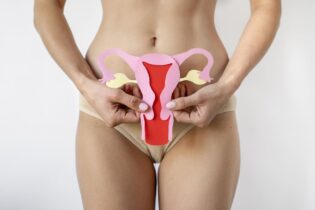
Ovarian cancer is one of the most complex medical challenges faced by women of reproductive age. Although it is primarily associated with general health, its impact on fertility cannot be underestimated. For many women, receiving an ovarian cancer diagnosis not only means facing oncological treatment but also immediately considering how to protect their chances of having children in the future. In this blog, we will thoroughly explore how ovarian cancer can affect fertility, what options exist to preserve reproductive capacity, and how a specialized approach can radically change the maternity outlook for these women. What is Ovarian Cancer? Ovarian cancer originates when abnormal cells in the ovary begin to multiply uncontrollably. It can be of different types, with high-grade serous carcinoma being the most common. Early detection is difficult because symptoms are often vague or attributed to other causes, and current screening methods are limited. Therefore, many cases are diagnosed at advanced stages. Some risk factors include: However, ovarian cancer can also affect young women of reproductive age, adding an even more sensitive dimension to the diagnosis: the possibility of compromising their fertility. How Does Ovarian Cancer Affect Fertility? The impact on fertility can result from multiple factors: Each situation is unique and depends on the stage of cancer, the type of treatment needed, and the patient’s maternity wishes. Fertility Preservation Options Before Treatment When the diagnosis allows (meaning cancer does not require immediate intervention), there are options to preserve fertility before starting oncological treatment: 1. Egg Freezing This involves stimulating the ovaries to retrieve multiple eggs, which are then extracted and vitrified for future use. 2. Embryo Freezing If the woman has a partner or is willing to use a sperm donor, the eggs can be fertilized immediately and the resulting embryos frozen. 3. Ovarian Tissue Preservation An experimental technique involving the removal and freezing of ovarian tissue before treatment, which can later be reimplanted to restore ovarian function. Maternity Options After Treatment If fertility preservation was not possible before starting treatment or if the ovaries were damaged, there are still alternatives for achieving motherhood: 1. Use of Donated Eggs Egg donation is a safe and effective option for women who cannot use their own eggs. 2. Surrogacy When cancer treatment has affected the uterus or there is a risk of recurrence with pregnancy, a surrogate mother can be used. 3. Adoption Although it is not a direct medical solution, adoption is a legal and loving option for building a family after facing cancer. Fertility and Cancer Survival: Medical and Emotional Considerations Overcoming ovarian cancer involves a profound physical and emotional process. That’s why it is important to consider: Comprehensive support is key so that patients can navigate this journey with confidence and hope. The Role of a Specialized Fertility Center Having a team of assisted reproduction specialists is fundamental. Institutions like Ingenes offer: Each treatment must be adapted to the clinical and emotional situation of the patient, to offer not only the best chance of success but also a humane and respectful experience. What Should You Ask Your Doctor? If you have been diagnosed with ovarian cancer and are concerned about your fertility, some key questions to ask include: Conclusion An ovarian cancer diagnosis changes life in many ways, but it does not mean the end of the dream of motherhood. Thanks to advances in reproductive medicine and fertility preservation programs, today there are more paths than ever for those facing this tough battle. If you or someone close to you is facing an ovarian cancer diagnosis, you are not alone. At Ingenes, we bring all our experience, technology, and human commitment to help you preserve and build the family you desire. Schedule a consultation and discover all the options that science and love for life have to offer you.

Argentinian singer María Becerra, 25, recently experienced another ectopic pregnancy, helping to break the stigma surrounding this condition—which can affect women of any age. At Ingenes, we support those going through this experience, offering both medical and emotional care. Learn what an ectopic pregnancy is, why it can recur, and what your options are. What Is an Ectopic Pregnancy and Why Can It Happen Again? An ectopic pregnancy occurs when a fertilized egg implants outside the uterus, most often in the fallopian tubes. This condition, which affects roughly 1 in 50 pregnancies, can be life-threatening and requires immediate medical attention. In cases like María’s, who has experienced it twice, understanding the risk factors is key: previous ectopic pregnancies or pelvic infections, among others. María Becerra Sheds Light on a Common, Yet Rarely Discussed Issue The singer and songwriter was hospitalized following an emergency procedure that placed her life at risk. According to her family’s official statement, she is currently in intensive care but out of danger. Her experience brought attention to this serious complication, helping many women identify symptoms, seek help, and realize they are not alone. Common symptoms include: Timely intervention can save lives. Ingenes: Comprehensive Support for Women Facing This Condition At Ingenes, we’ve spent the last 20 years supporting women dealing with complex reproductive health issues like ectopic pregnancy. Our approach is not just medical—it’s also deeply human. We understand that loss or a difficult health experience requires emotional support, clear information, and concrete solutions to move forward. Our team includes experts in assisted reproduction, gynecology, and psychology who work together to provide you with personalized, integrated care. An ectopic pregnancy does not mean the end of your motherhood dreams. With proper monitoring and the right treatments, many women go on to conceive successfully. At Ingenes, we design personalized fertility solutions tailored to your medical history, age, and goals. Our commitment is to support you at every step—until you’re holding your baby in your arms. Raising Awareness, Offering Support, Sharing Knowledge Thanks to figures like María, conversations around conditions like ectopic pregnancy are becoming more common. At Ingenes, we believe in the power of these moments to spark necessary dialogue, offer helpful information, and provide compassionate support to those who need it most.

Every year, in the last week of April, National Infertility Awareness Week is celebrated. This initiative highlights that infertility transcends all cultural, social, and geographical barriers, affecting both men and women of all ages and origins. You may know someone close to you who is facing this situation. Although it can be difficult to know how to support a friend struggling with infertility, there are effective strategies that can help you provide support in an empathetic and safe way. National Infertility Awareness Week is a key period to address and spread awareness about this important health issue, which affects approximately 1 in 6 people of reproductive age globally. During this week, special emphasis is placed on the challenges and solutions related to infertility, highlighting the need for a comprehensive approach that includes both prevention and effective treatment. At Ingenes, we recognize the importance of this issue and are committed to providing resources and support to those facing challenges in their quest to have a baby. Infertility is multifaceted and can be caused by a variety of factors, ranging from medical problems in both men and women to lifestyle factors that can be modified to improve the chances of conception. Our approach at Ingenes includes the use of advanced assisted reproductive technologies and a team of specialists dedicated to offering personalized treatments. We understand that each case is unique, and therefore, our approach focuses on deeply understanding the underlying causes of each patient’s infertility to offer the most effective solutions. It is essential to be well informed about the treatment options available and medical advances that can help overcome infertility. At Ingenes, we also provide continuing education and resources to ensure our patients have access to the best information and support possible during their treatment. During National Infertility Awareness Week, we reinforce our commitment to educating and supporting our patients, focusing on providing valuable information and online resources. Our goal is to improve public understanding of infertility, highlighting the importance of seeking early medical advice and exploring all available treatment options. This approach helps address both the emotional and physical challenges that many couples face, ensuring they know necessary to make informed decisions about their reproductive health. By participating in these activities, Ingenes not only reinforces its commitment to reproductive health but also joins a global effort to raise awareness and support people on their path to parenthood, ensuring that every patient receives compassionate care. and expert he deserves.

Every April 25th, the world commemorates DNA Day, a date that honors one of the most important scientific discoveries of the 20th century: the double helix structure of deoxyribonucleic acid (DNA). Since its discovery in 1953 by James Watson and Francis Crick, DNA has revolutionized the way we understand life, inheritance, diseases, and especially reproductive medicine and genetics. In this article, we will explore the importance of DNA, how it has impacted the development of medical treatments—particularly in fertility and assisted reproduction—and why it remains a key pillar of future medicine. What Is DNA and Why Is It Celebrated? DNA (deoxyribonucleic acid) is the molecule that contains the genetic information of all living beings. It is found in the nucleus of every cell and is responsible for transmitting hereditary characteristics from one generation to the next. The celebration of DNA Day dates back to April 25, 1953, when the article describing the structure of DNA was first published in the journal Nature. This discovery allowed the scientific community to understand how genetic information is copied and transmitted, laying the foundation for fields such as genetic engineering, molecular diagnostics, gene therapy, and personalized medicine. The Structure of DNA: The Language of Life The famous DNA double helix is much more than an iconic image of science. It is formed by two twisted strands that contain millions of combinations of four nitrogenous bases: adenine (A), thymine (T), cytosine (C), and guanine (G). These bases pair specifically (A with T and C with G), creating a code that instructs our cells on how to function, reproduce, and stay alive. This genetic code is unique to each person (except for identical twins), which explains why we are all different, and at the same time, why we share so many similarities with our relatives. DNA in Modern Medicine The discovery of DNA opened the door to the development of genetic tests that allow for the identification of hereditary mutations, disease predisposition, genetic compatibility, and much more. In the field of medicine, this has completely transformed the diagnosis and treatment of multiple conditions. Today, thanks to DNA knowledge, procedures such as: can all be performed. DNA and Fertility: A Revolution in Assisted Reproduction One of the fields where DNA has had the greatest impact is reproductive medicine. In fertility clinics around the world, genetic testing has become an essential tool to increase the chances of achieving a healthy pregnancy. How is DNA testing applied in fertility treatments? Cases Where DNA Makes the Difference Many people facing unexplained fertility problems find answers through comprehensive genetic testing. For example: The Future of DNA in Reproductive Medicine The sequencing of the human genome has opened new lines of research in fertility, embryology, and reproductive genetics. In the near future, we can expect: Ingenes: Leaders in Genetics and Fertility At Ingenes, genetics is an essential part of our treatments. We have our own genetics laboratory and the support of specialists in genetic diagnosis, embryology, reproductive medicine, and genetic counseling. We offer studies such as: In each of our programs, the goal is clear: to maximize the chances of a healthy pregnancy and a baby without hereditary conditions. Conclusion DNA Day not only celebrates a historic discovery but also the power of science to transform lives. Thanks to the study of DNA, today we can prevent diseases, better understand our reproductive health, and increase the chances of forming a healthy and happy family. If you’re facing fertility issues or want to learn more about how your genetic profile can influence your plans to have a baby, we invite you to reach out to Ingenes. Genetics is a powerful tool, and in the right hands, it can help you achieve what you want most: your baby.
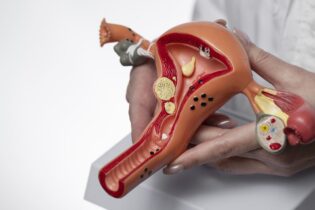
Infertility is a condition that affects millions of people worldwide and can be due to a wide variety of factors. Among them, tubal factor infertility is one of the most common causes in women. This type of infertility occurs when the fallopian tubes are blocked, damaged, or absent, preventing the egg and sperm from meeting for fertilization. In this blog, we’ll explore the symptoms, causes, and treatment options for tubal factor infertility, as well as its relationship with other types such as uterine factor infertility, and how assisted reproductive treatment at an IVF clinic may be the right solution. What is Tubal Factor Infertility? Tubal factor infertility refers to difficulty achieving pregnancy due to problems in the fallopian tubes. These structures have the essential function of transporting the egg from the ovary to the uterus and are the site where fertilization occurs. If these tubes are blocked, inflamed, or absent, this process is interrupted, significantly reducing the chances of natural pregnancy. Symptoms of Tubal Factor Infertility One of the biggest challenges of this condition is that, in many cases, it doesn’t present noticeable symptoms. Many women don’t discover they have issues with their tubes until they try to conceive without success. However, some signs may include: Common Causes of Tubal Factor Infertility There are various causes that can lead to tubal factor infertility: Connection with Uterine Factor Infertility Although tubal factor infertility is a cause on its own, it may often be present along with other types of infertility, such as uterine factor infertility. This type of infertility is due to abnormalities in the uterus that hinder embryo implantation or pregnancy development. Together, both conditions can complicate diagnosis and treatment, which is why it’s essential to go to a specialized clinic. Diagnosing Tubal Factor Infertility To diagnose this condition, a fertility specialist may use several tests: Treatments for Tubal Factor Infertility Surgery to Restore Tubal Function In some cases, when the damage is not severe, surgery can be performed to repair the tubes. However, this option depends on the extent of the damage and factors such as age and reproductive history. Assisted Reproductive Treatment When surgery is not viable or has not been effective, assisted reproductive treatment is the most recommended alternative. At an IVF clinic, in vitro fertilization (IVF) allows eggs to be fertilized outside the body and the embryo to be transferred directly into the uterus, bypassing the need for functional tubes. Egg Donation If, in addition to tubal factor infertility, there is also low ovarian reserve or compromised egg quality, egg donation may be an option. This alternative, available in many IVF clinics, significantly increases success rates. Emotional Considerations and Support The diagnosis of tubal factor infertility can be emotionally challenging. It’s important to have psychological and emotional support throughout the process. Many fertility clinics have multidisciplinary teams that offer emotional support, legal advice, and comprehensive guidance. When to Visit a Fertility Clinic? It’s recommended to visit a fertility clinic if: Conclusion Tubal factor infertility represents a significant obstacle for many women, but with proper diagnosis and the right treatment, pregnancy is possible. Thanks to advancements in assisted reproductive treatment, such as IVF, and the work of a specialized IVF clinic, the chances of having a child are real.If you suspect that you may be facing tubal factor infertility or uterine factor infertility, don’t hesitate to seek professional help. At Ingenes, we have expert physicians, cutting-edge technology, and a comprehensive approach that puts your dreams at the center of our work. Schedule an appointment today and take the first step toward the family you want to build.
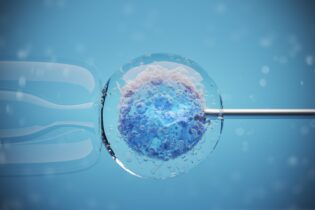
Egg donation is an altruistic and courageous act that allows many individuals and couples to fulfill their dream of having a child. While it represents a great opportunity for those facing causes of infertility in females, it also raises many questions—especially about the possible pain or discomfort the donor might experience. In this post, we’ll answer the question “Does egg donation hurt?” and explain what to expect at every stage of the process. Egg donation—an act that changes lives Egg donation is a procedure in which a woman donates some of her eggs so that someone else can use them in a fertility treatment. This process is essential in cases of infertility caused by factors such as ovarian infertility, advanced maternal age, previous cancer treatments, or certain genetic conditions. Although many people believe that egg donation is painful, the reality is that with the right support from a specialized infertility clinic, the process is safe, well-controlled, and carefully monitored to minimize any discomfort. Stages of Egg Donation and Discomfort Level 1. Initial evaluation and medical tests In this first stage, the donor visits an infertility clinic for hormonal, genetic, and psychological screenings. This step is not painful and mostly consists of blood tests, interviews, and ultrasounds. 2. Ovarian stimulation For approximately 10 to 12 days, the donor receives subcutaneous hormone injections to stimulate the ovaries and help mature multiple eggs. This phase may cause mild discomfort, similar to premenstrual symptoms: Although it’s not clinically painful, it can be uncomfortable. However, these side effects are temporary and typically subside after the eggs are retrieved. 3. Follicular aspiration (egg retrieval) This is the part of the process that raises the most concern. Follicular aspiration is done under sedation and guided by a transvaginal ultrasound. The procedure lasts 15 to 30 minutes and is not painful during the process, since the donor is either asleep or semi-conscious. After the retrieval, some women report: These symptoms usually last 1 or 2 days and are easily managed with over-the-counter pain relief and rest. Uncommon but Possible Risks As with any medical procedure, there are rare risks, such as ovarian hyperstimulation syndrome (OHSS), an excessive reaction to hormone medication. This is why it’s essential to choose an experienced infertility clinic with qualified staff that can respond quickly to any signs of complications. Benefits of Donating Eggs at a Specialized Infertility Clinic Donating eggs at a reputable fertility clinic ensures: Additionally, when treating causes of infertility in females with egg donation treatments, clinics can also offer alternatives like egg vitrification, IVF, or reciprocal donation, depending on the case. Common Myths About Egg Donation 1. “Donating eggs causes infertility.” False. Women are born with thousands of eggs, and many are lost naturally during each menstrual cycle. The donation process simply retrieves the ones that would have been lost that month, so it doesn’t affect future fertility. 2. “It’s a very painful process.” Also incorrect. As we’ve seen, the procedure is carefully designed to be as non-invasive as possible. Discomfort is similar to a heavy menstrual cycle and is manageable with medication. 3. “Donors don’t receive post-care.” At a professional infertility clinic, the donor is supported from the beginning through full recovery. Many clinics also offer follow-up and reproductive health guidance. Considerations Before Donating Eggs Before starting the egg donation process, it’s important to reflect on: Conclusion Egg donation is a transformative experience, both for the person who receives it and the one who gives it. While it may cause some discomfort, it should not be considered painful when carried out with the support of a specialized fertility clinic and proper protocols, such as those at Instituto Ingenes. Contributing to the fight against the causes of infertility in women and supporting those suffering from ovarian infertility is an extraordinary act of generosity. If you’re considering becoming a donor, schedule a consultation and let us answer all your questions. At Ingenes, science and life come together—thanks to your decision.

World Health Day is an opportunity to reflect on how different health-related factors directly affect birth rates and the complexity inherent in human reproduction. The ability to conceive and carry a pregnancy to term is influenced by a wide range of factors including, but not limited to, physical health, lifestyle, environment, and socioeconomic conditions. This topic is especially relevant today, where many face challenges in their desire to start a family. Physical health and reproduction The physical health of both parents plays a crucial role in conception and fetal development. Medical conditions such as obesity, diabetes, thyroid disorders, and sexually transmitted diseases can affect fertility in both men and women. Furthermore, the quality of the egg and sperm decreases with age, which is an important factor to consider, especially in societies where the trend is towards parenthood at more mature stages of life. Lifestyle and fertility Lifestyle is another determining factor in fertility and birth rates. Tobacco, alcohol, and illegal drug use, as well as exposure to certain environmental chemicals and toxins, can negatively affect both sperm and egg quality. Nutrition also plays a fundamental role; A balanced diet rich in essential nutrients can improve fertility, while a poor diet can have the opposite effect. Environment impact The environment in which we live can significantly influence our reproductive capacity. Environmental pollution, for example, has been linked to lower fertility rates in both sexes. Chronic stress, whether related to work or personal factors, can also affect reproductive hormones and decrease the chances of conceiving. Socioeconomic aspects Socioeconomic conditions are important determinants in decisions to have children and birth rates. In many parts of the world, economic instability, lack of access to quality healthcare, and job insecurity have led many to postpone parenthood or decide to have fewer children. Education and access to reliable reproductive health information are critical to making informed decisions about family planning. Mental health Mental health, often overlooked, is essential for healthy reproduction. Anxiety and depression can affect libido and fertility. Additionally, facing fertility challenges can have a significant emotional impact, underscoring the importance of emotional and psychological support during fertility treatments. Advances in assisted reproduction For those facing difficulties conceiving naturally, advances in reproductive medicine have opened up new possibilities. Techniques such as In Vitro Fertilization (IVF) and artificial insemination have allowed many people to overcome reproductive obstacles. However, these options can be expensive and emotionally demanding, highlighting the need for greater support and accessibility to these services. In short, the ability to have children and start a family is influenced by a complex interaction of factors. Recognizing and addressing these issues is crucial to improving birth rates and supporting those who wish to become parents. As we celebrate World Health Day, let us commit to promoting environments and lifestyles that support reproductive health. Through education, advocacy, and care, we can navigate the complexities of fertility, empowering individuals and couples to fulfill their dreams of parenthood.

Every year, June 4 is celebrated as World Fertility Day, a significant date to raise awareness about the importance of reproductive health and the challenges faced by people who want to start a family. This day is dedicated to educating and raising public awareness about the various causes of infertility, as well as promoting access to the treatments and support necessary to overcome it. At Ingenes, we join this global cause and are committed to providing advanced and personalized solutions to help people fulfill their dream of becoming parents. The Importance of Fertility in Global Health Fertility is a crucial component of a person’s overall health and well-being. The ability to conceive and carry a pregnancy to term is a fundamental part of life for many people and couples. However, infertility is a reality that affects millions of people around the world. According to the World Health Organization (WHO), it is estimated that between 10% and 15% of couples experience difficulties conceiving. World Fertility Day not only focuses on the medical aspects of infertility but also the emotional and psychological impact it can have on people. Infertility can lead to feelings of frustration, sadness, and stress, affecting quality of life and personal relationships. Causes and treatments of infertility Infertility can be caused by a variety of factors in both men and women. In women, common causes include ovulation problems, blockages in the fallopian tubes, endometriosis, and uterine problems. In men, causes may include problems with sperm production, blockages, and genetic factors. In many cases, infertility can be a combined problem where both members of the couple contribute to the difficulty conceiving. At Ingenes, we address infertility with a comprehensive and personalized approach. We offer a wide range of solutions ranging from assisted reproduction techniques such as intrauterine insemination (IUI) and in vitro fertilization (IVF), to more advanced procedures such as intracytoplasmic sperm injection (ICSI) and preimplantation genetic diagnosis (PGT). Additionally, we provide emotional and psychological support through counseling and support groups, understanding that emotional health is as important as physical health. Innovation and Hope at Ingenes Within the framework of World Fertility Day, it is important to highlight how innovation in fertility treatments has transformed the possibilities for many couples. At Ingenes, we pride ourselves on being at the forefront of these innovations. Our laboratories are equipped with the latest technology and our team of specialists is constantly trained in the most advanced techniques. For example, our IVF ABC program is designed to provide effective and accessible treatment for those who want to have another child. This program includes the essentials for fertilization and embryonic development and also offers additional options such as embryo cryopreservation and the use of advanced techniques such as ICSI. The future of fertility The celebration of World Fertility Day reminds us that there is still much to do to improve access to and quality of fertility treatments. It is essential to continue research and innovation to offer new solutions to the challenges that infertility presents. At Ingenes, we are committed to being part of this advancement, working tirelessly to offer our patients the best opportunities to build the family they want. World Fertility Day is an opportunity to reflect on the importance of reproductive health and the impact of infertility on the lives of many people. At Ingenes, we join this global cause and reaffirm our commitment to providing hope and solutions to those facing fertility challenges. Through innovative treatments, comprehensive support, and a patient-centered approach, we continue to work to make the dream of parenthood a reality for many people around the world.

In vitro fertilization (IVF) has revolutionized assisted reproduction, allowing thousands of couples and single individuals to fulfill their dream of having a child. However, a common question arises: Is it possible to choose the baby’s sex with IVF? The short answer is yes, thanks to advancements in embryo selection technologies. However, this process involves specific methods as well as medical and ethical considerations. In this article, we will explore how sex selection works with IVF, the reasons why people opt for this procedure, and the available alternatives. How Does Sex Selection Work with IVF? Sex selection in an IVF treatment is performed through a procedure called Preimplantation Genetic Testing for Aneuploidies (PGT-A). This technique allows embryos to be analyzed before implantation to identify their chromosomal composition and select those with the desired sex. The key steps in this process are: This procedure not only allows for sex selection but also helps identify potential chromosomal abnormalities, increasing the chances of a successful pregnancy. Reasons Why People Opt for Sex Selection There are various reasons why some families consider sex selection in their fertility treatment: Ethical Considerations and Sex Selection Although sex selection with IVF is medically possible, it has been the subject of ethical and legal debate in various countries. Some key points to consider include: For these reasons, seeking medical and ethical counseling before making a decision about sex selection is crucial. Alternatives to Sex Selection with PGT-A For those looking to select their baby’s sex but interested in exploring other options, there are alternative methods, although they are less precise: Conclusion Sex selection with IVF is a real and viable option thanks to advanced technologies like PGT-A, which allows identifying embryos with the desired sex before transfer. This procedure offers benefits for both family balancing and the prevention of sex-linked genetic diseases. However, it also involves ethical and legal considerations, so it is essential to be well-informed and discuss all available options with an assisted reproduction specialist. At Ingenes, we have the most advanced technologies and a team of experts ready to guide you on your journey to parenthood. If you’re interested in learning more about sex selection with IVF and whether it’s the right option for you, contact us today for a personalized consultation.

As part of its commitment to innovation and reproductive medicine, Ingenes is preparing to welcome two renowned scientists from Oregon Health & Science University (OHSU), one of the world’s most prestigious institutions in gene therapy and reproductive biotechnology. One of the most significant milestones of this collaboration will be the consolidation of the IVF MORE® (Magnetic Ovulatory Restoration) technique, an innovative procedure designed to improve egg quality and increase the chances of success in assisted reproduction treatments. Ingenes and OHSU: Uniting Science and Innovation in Assisted Reproduction During their upcoming visit to Ingenes, the specialists: Dr. Shoukhrat Mitalipov, Head of the Department of Gene Therapy and Embryonic Cells at OHSU, a pioneer in reproductive biotechnology. Dr. Nuria Martí-Gutiérrez, an expert in genetics and assisted reproduction, recognized for her research in advanced embryology. Both scientists will lead the first ovarian restoration session at Ingenes, a key event in the development of more effective treatments for patients with poor egg quality or a history of failed IVF cycles. The First Ovarian Restoration Session and the Advancement of IVF MORE® These experts have worked on revolutionary techniques such as nuclear transfer, mitochondrial replacement therapy, and embryonic stem cell reprogramming, opening new doors for those facing fertility issues related to egg quality. Thanks to this partnership with OHSU, Ingenes continues to take reproductive medicine to the next level, offering advanced solutions for patients who previously only had the option of egg donation. A Cutting-Edge Laboratory for Fertility As part of this effort, Ingenes has inaugurated a state-of-the-art laboratory, equipped with the latest technology for the diagnosis, restoration, and optimization of reproductive cells. This new laboratory reinforces Ingenes’ position as the leading fertility institute in Latin America, providing patients with the most advanced techniques in assisted reproduction. 20 Years of Innovation in Fertility In 2025, Ingenes celebrates 20 years of transforming lives through assisted reproduction, with an unwavering commitment to offering treatments backed by the best technology and top experts.If you are looking for an innovative solution to improve your fertility and increase your chances of pregnancy, IVF MORE® could be the option you’ve been waiting for. Contact us to learn how we can help you achieve your dream of having a baby.

Irregular periods can be a warning sign for many women trying to conceive. While some variation in cycle length is normal, persistent irregularities may indicate causes of infertility in women that affect ovulation and reduce the chances of conceiving naturally. In this article, we will explore the causes of infertility in women related to irregular periods, the possible treatments available, and how IVF fertility treatment can be an effective solution. What Is Considered an Irregular Period? A regular menstrual cycle usually lasts between 21 and 35 days, with minor variations between cycles. However, periods are considered irregular when: If a woman frequently experiences irregular periods, it is crucial to visit an infertility clinic to receive an accurate diagnosis and determine whether there are causes of infertility in women that require treatment. Causes of Irregular Periods and Their Impact on Fertility Irregular periods are often linked to hormonal imbalances or medical conditions that affect ovulation. The most common causes of infertility in women with irregular cycles include: 1. Polycystic Ovary Syndrome (PCOS) Polycystic Ovary Syndrome (PCOS) is one of the leading causes of irregular periods and infertility. This hormonal disorder leads to excess androgen (male hormone) production, interfering with ovulation and causing menstrual irregularities. PCOS is strongly linked to ovarian causes of infertility, as the ovaries may produce multiple follicles without releasing a mature egg. Symptoms of PCOS: Irregular or absent menstrual cycles.Weight gain and insulin resistance.Acne or excessive hair growth. Treatment Options: Lifestyle changes, including diet and exercise.Medications such as Clomiphene Citrate or Letrozole to stimulate ovulation.IVF fertility treatment in more advanced cases. 2. Premature Ovarian Insufficiency (POI) Premature ovarian insufficiency (POI) occurs when the ovaries stop functioning properly before age 40. This leads to irregular periods or no menstruation due to reduced estrogen production and lack of ovulation. This condition is a clear example of ovarian causes of infertility and may be treated through ovarian stimulation or IVF fertility treatment at infertility clinics. 3. Thyroid Disorders Both hypothyroidism (low thyroid hormone production) and hyperthyroidism (excess thyroid hormones) can impact menstrual regularity. The thyroid plays a crucial role in hormone regulation, and imbalances can disrupt ovulation. 4. Chronic Stress and Extreme Weight Changes Chronic stress and extreme fluctuations in body weight can disrupt hormonal balance and halt ovulation. In these cases, stress reduction therapies and proper nutrition plans can help improve fertility. Diagnosing Irregular Periods and Infertility If a woman experiences irregular menstrual cycles and struggles to conceive, visiting an infertility clinic is the best approach for an accurate diagnosis. Common tests include:Hormone testing: Evaluating levels of FSH, LH, estrogen, progesterone, and thyroid hormones.Transvaginal ultrasound: Assessing the ovaries for cysts or abnormalities.Genetic testing: Especially in cases of premature ovarian insufficiency. Treatments for Infertility Caused by Irregular Periods Treatment options vary depending on the specific cause but commonly include: 1. Ovulation Induction Medications like Clomiphene Citrate or Letrozole can help stimulate ovulation in women with PCOS or mild ovulatory issues. 2. Intrauterine Insemination (IUI) This procedure may be helpful if ovulation can be induced with medication and the fallopian tubes are healthy. However, for more complex cases, IVF fertility treatment is usually recommended. 3. In Vitro Fertilization (IVF) IVF is one of the most effective treatments for women with irregular periods and ovulatory problems. In this process, eggs are retrieved and fertilized in a laboratory before being transferred to the uterus. Infertility clinics offering IVF fertility treatment can integrate advanced techniques like Intracytoplasmic Sperm Injection (ICSI), especially in cases of combined infertility factors, including male infertility. 4. Egg Donation For women with premature ovarian insufficiency, egg donation may be the best alternative within IVF fertility treatment. Conclusion Irregular periods can be an early indicator of causes of infertility in women, particularly when they disrupt ovulation. Identifying the issue early and visiting an infertility clinic is essential for receiving the appropriate treatment. If you have been trying to conceive without success and experience irregular menstrual cycles, IVF fertility treatment may offer the best chance of pregnancy. There are multiple options available to address ovarian causes of infertility, from medications to advanced assisted reproduction techniques.If you have concerns about your fertility, consult experts at infertility clinics and take control of your journey toward motherhood.
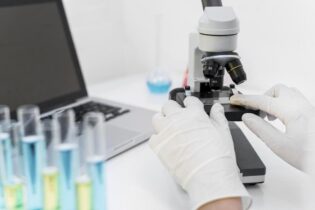
Ovarian rejuvenation with PRP (Platelet-Rich Plasma) is an innovative technique in fertility treatments used by many fertility centers to improve ovarian function in women with low ovarian reserve or premature ovarian insufficiency. This procedure has shown promising results for patients looking to increase their chances of success with IVF fertility treatment. However, the timing of the procedure within the treatment cycle is crucial to achieving the best outcomes.In this article, we will explore when is the right time to undergo ovarian rejuvenation, how the procedure works, and in which cases it is most effective. What is Ovarian Rejuvenation with PRP? Ovarian rejuvenation with PRP involves injecting platelet-rich plasma into the ovaries to stimulate follicular activity and improve egg quality. This plasma is derived from the patient’s own blood and contains growth factors that aid in cellular regeneration. This procedure is increasingly used in fertility center Mexico, especially for patients with ovarian-related infertility, such as: ✔ Low ovarian reserve.✔ Premature ovarian insufficiency.✔ Poor egg quality.✔ Advanced maternal age undergoing IVF fertility treatment.✔ Repeated IVF failures. When is the Right Time to Perform Ovarian Rejuvenation with PRP During IVF? The optimal timing for ovarian rejuvenation varies depending on the patient and diagnosis. However, there are three key moments when it is recommended within an IVF fertility treatment cycle: 1. Before Starting Ovarian Stimulation (2 to 3 Months Before the IVF Cycle) This is the most recommended time and has shown the best results in fertility center Mexico. Performing PRP 2 to 3 months before ovarian stimulation allows the growth factors to act on the ovaries, enhancing follicular activation and improving egg quality. Benefits of performing PRP at this stage:✔ Increased egg production during ovarian stimulation.✔ Improved egg quality, leading to better fertilization rates.✔ Reduced need for high doses of hormonal medication. 2. During Ovarian Stimulation In some cases, fertility specialists may apply PRP during the ovarian stimulation cycle, especially if poor ovarian response is detected. Benefits of performing PRP at this stage:✔ Can improve ovarian response in real-time.✔ Increases the likelihood of retrieving more mature eggs for fertilization. However, this approach is not always ideal, as PRP effects may take longer to manifest. 3. After a Failed Embryo Transfer For patients who have experienced one or more failed embryo transfers, PRP can also be used to enhance endometrial receptivity before a new IVF fertility treatment attempt. Benefits of performing PRP at this stage:✔ May improve endometrial quality, facilitating embryo implantation.✔ Reduces uterine inflammation.✔ A potential option for women with recurrent implantation failure. How Does Ovarian Rejuvenation with PRP Work? The ovarian rejuvenation procedure in fertility center Mexico follows these steps: ✔ Blood Extraction: A sample of the patient’s blood is collected.✔ PRP Processing: The blood is centrifuged to isolate the platelet-rich plasma.✔ Ovarian Injection: Using transvaginal ultrasound guidance, PRP is injected directly into the ovaries.✔ Monitoring Ovarian Response: Hormonal tests and ultrasounds are performed to evaluate PRP’s impact on egg production. The procedure is safe, outpatient, and non-invasive, allowing patients to resume normal activities immediately after the application. Who Can Benefit from Ovarian Rejuvenation with PRP? PRP is recommended for patients with ovarian-related infertility, including: ✔ Low ovarian reserve diagnosed by low Anti-Müllerian Hormone (AMH) levels.✔ Premature ovarian insufficiency, occurring before age 40.✔ Women over 35 with poor egg quality.✔ Patients with low ovarian response in previous IVF fertility treatment cycles.✔ Cases of recurrent implantation failure in prior treatments. While PRP does not guarantee treatment success, it has shown promising results in fertility center Mexico, especially when performed before ovarian stimulation. Conclusion Ovarian rejuvenation with PRP has become an innovative tool in fertility treatments. However, the right timing for its application is crucial to maximizing its benefits. If you are considering this procedure, consult a specialist at a fertility center Mexico to determine if it is the right option for you. Every advancement in reproductive medicine represents a new opportunity to make your dream of parenthood a reality. For patients in the United States, fertility clinic Houston offers state-of-the-art fertility treatments, including ovarian rejuvenation with PRP, ensuring that each patient receives the best care possible.

When a couple faces difficulties getting pregnant, they may turn to fertility treatments to increase their chance. Common options include timed intercourse and intrauterine insemination, which is also known as ‘intra uterine insemination’ or’ IUI’. Both methods seek to optimize conception by synchronizing ovulation with the introduction of sperm into the woman’s reproductive tract.Some randomized controlled trials suggest that the effectiveness of these methods varies based on the couple’s medical history, given each has its own characteristics, advantages, and limitations.In this article, we will explore what Timed Intercourse and IUI consist of, their differences, and how to choose the right treatment for you. What Is Timed Intercourse? Timed intercourse is a low-complexity assisted reproduction method that consists of synchronizing sexual intercourse with the ovulation period to increase the chances of fertilization. This option is recommended for couples who do not face severe fertility problems, and for women with irregular ovulatory cycles. This approach is beneficial for those experiencing unexplained infertility, where no specific cause has been identified. How Does Timed Intercourse Work? This treatment is based on three main phases: Advantages of Timed Intercourse For couples experiencing unexplained infertility, timed intercourse offers several benefits: Disadvantages of Timed Intercourse While timed intercourse is a helpful starting point, here are some things to consider: What is Intrauterine Insemination(IUI)? Intrauterine insemination (IUI) is a low-complexity fertility procedure in which sperm is placed directly into the woman’s uterus at the precise moment of ovulation. Unlike timed intercourse, this method of artificial insemination bypasses potential barriers in the cervix, increasing the likelihood of conception. Randomized control trials occurred and showed that IUI can improve success rates, particularly when combined with ovarian hyperstimulation. This treatment is an intermediate option between timed intercourse and in vitro fertilization (IVF with ICSI). How Does Intrauterine Insemination Work? he process of intrauterine insemination is made up of several key stages: Advantages of IUI IUI is a widely used fertility treatment that offers an effective alternative for couples who have difficulty getting pregnant naturally. By directly placing sperm into the uterus, this method: Disadvantages of IUI While IUI can be an effective fertility treatment, it is not suitable for all couples. Some disadvantages of IUI are: Although IUI significantly improved pregnancy rates for some couples, it is not a guaranteed solution. Difference Between Timed Intercourse and Intrauterine Insemination (IUI) Timed intercourse vs IUI: both are fertility treatments that aim to increase the chances of pregnancy, but they differ in various ways. Medical Intervention Timed intercourse requires less medical intervention, while IUI involves ovarian hyperstimulation and sperm manipulation in a fertility center laboratory. Success Rates Intrauterine insemination (IUI) has a higher success rate than timed intercourse, especially in cases of mild infertility. Cost Considerations Timed intercourse is more affordable, while IUI requires a greater investment due to additional procedures. Emotional and Physical Impact Fertility treatments can be both physically demanding and emotionally stressful. Timed intercourse may place pressure on couples, while IUI is structured and involves hormonal therapies and medical procedures. Suitability for Different Fertility Issues Timed intercourse is ideal for those with regular ovulation cycles and no diagnosed reproductive issues. IUI is often recommended for those with mild male factor infertility, cervical mucus issues, or unexplained fertility issues. When to Choose Timed Intercourse For couples trying to achieve a pregnancy naturally, timed intercourse is often the first step before considering more advanced treatments if… When to Choose IUI IUI is a fertility treatment designed for couples who need more assistance than timed intercourse but are not yet ready for IVF. You should choose IUI: While IUI significantly improved pregnancy rates, it isn’t always successful on the first attempt. If None of These Options Work, What’s the Next Step? When neither timed intercourse nor IUI results in a successful pregnancy, it is recommended to move on to more advanced fertility treatments such as in vitro fertilization (IVF treatments). When is In Vitro Fertilization (IVF) Recommended? IVF is a more advanced fertility treatment that can help couples get pregnant when other methods have not been successful. IVF with ICSI is an advanced variant of IVF in which a sperm is directly injected into the egg to optimize fertilization rates. Conclusion Both timed intercourse and intrauterine insemination (IUI) are effective options within low-complexity fertility treatments. The choice between one or the other depends on the infertility diagnosis, the woman’s age, sperm quality, and the reproductive history of the couple. If achieving a pregnancy does not occur after multiple attempts with timed intercourse or IUI, a fertility center can assess whether in vitro fertilization (IVF) or IVF with ICSI is the next best step. These treatments have higher success rates. The decision must be made together with an assisted reproduction specialist, who will evaluate the most appropriate option for each case. The key is to be informed and seek the most effective treatment to achieve your dream of having a baby.
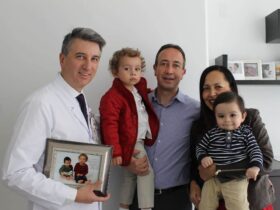
Ingenes Institute of Fertility and Genetics opened its doors in 2005 in Mexico to transform the lives of millions of people by helping them bring a baby into their families. Today we have expanded into the United States, providing high-quality Assisted Reproduction services, and offering the highest success rate in Latin America, even with the most complex cases. Assisted Reproduction is accessible to anyone who wishes to have children You may be interested in reading Noemí’s story and how she conceived her babies after turning 46 Assisted Reproduction treatments have become the main alternative to achieving a baby, not only for people with infertility problems but also for same-sex female couples and even women who wish to become mothers by themselves. Scientific breakthroughs in the fields of fertility and assisted reproductive technology have come a long way, allowing thousands of people to achieve their dream of bringing a baby into their lives, however, in the past, fertility clinics and specialized institutions offered these services for exorbitantly high prices. Today these treatments are accessible to millions of people, and Ingenes has been an important part of this paradigm shift, being the Institute to performs the largest number of In Vitro Fertilization procedures in all of Latin America, successfully attending to reproductive health problems, and succeeding even in the most complex cases. “We must put an end to taboos around infertility, it is necessary to talk about this subject without fear, so that accurate information reaches everyone; and more people benefit from all the Assisted Reproduction alternatives that exist today”. Dra. Claudia Castillo, medical specialist in Assisted Reproduction and medical leader at Ingenes Mexico City. 50 thousand babies in two decades and counting… You may be interested in reading Cecilia’s story and how she managed to have her baby after turning 48 During the last 18 years, we have helped deliver more than 50,000 babies into the world, thanks to the extensive experience of our more than 85 fertility experts, and an equal number of multidisciplinary professionals working in different areas, such as Andrology, Embryology, Nursing, Chemistry, Molecular Biology, Psychology, and more. The experience and empathy of each member of our team differentiate us from any other institute or clinic on the market, we are the best alternative for these types of treatments in Mexico and the United States, guaranteeing up to 96% chances of success with our Multicycle plans, and creating personalized programs according to the reproductive health and wishes of each patient. “As doctors we must give them tools, encourage them, let them know that we are not giving up on them. We get so involved with our patients that we live each stage of their pregnancy as a member of their family, they make us part of it”. Dr. Martín Rivera, medical specialist in Assisted Reproduction and medical leader at Ingenes Guadalajara. In Vitro Fertilization, multiple cycles to reach your goal You may be interested in reading Evelyn’s story and how she achieved her baby after 12 years of trying. Assisted Reproduction treatments still require a significant investment, especially those of high complexity such as In Vitro Fertilization, that is why our programs offer reduced costs, Ingenes possesses its own Molecular Research and IVF Laboratories, performing every procedure and test within our own institute. This contributes to lowering the costs for treatments carried out in our branches in the United States since patients can begin their treatment at Ingenes Houston or Ingenes Orange County, and finish the treatment at a branch of their choice in Mexico, at our facilities with the highest quality standards. Our Multicycle In Vitro Fertilization plans offers up to a 96% chance of achieving your baby since we carry out from 1 to 4 different IVF cycles, which is up to consideration by standards of each body’s reactions and adaptation through an Assisted Reproduction treatment. Different types of families with a common dream You may be interested in reading the story of Guadalupe and her wife and how they decided to share their motherhood Today, we have helped bring more than 50,0000 stars to illuminate the lives of all kinds of families, proving that the most important thing when it comes to bringing a new life into this world is really all about welcoming them into a loving home. “Our purpose is to make a difference in this world by helping people achieve the greatest transformation of their lives with the arrival of a baby, a life force that changes everything around them. The center of the world is our family, not the individual. Having a baby transforms you, and family is a great motivation to change the world, an opportunity to make it better, it grants us the chance of bringing out the best of ourselves”. Dr. Felipe Camargo, General Director and Founder of Instituto Ingenes Today, fertility services and treatments not only benefit people with problems conceiving, but they also benefit same-sex couples, single women; and all kinds of people who want to grow their families. This is why we have specific programs to help realize the dreams of motherhood and fatherhood respectively, as each aspiring parent envisions it: How far has science taken us? Gender selection and prenatal testing to rule out anomalies You may be interested in reading the story of Cisne and how she decided to become a mother of two by herself Advances in reproductive science have realized things that previously seemed impossible, such as choosing the sex of your baby, and analyzing the number of chromosomes in embryos: 1. Choosing whether you want to have a boy or a girl is possible today with Eligender: our technique allows you to have a baby of the desired sex with 99% effectiveness, this in case the patient is interested in selecting the sex or if their medical history includes any disease genetics linked to sex chromosomes. 2. Pre-implantation Genetic Test to avoid genomic abnormalities: to minimize the chances of chromosomal abnormalities such as Down Syndrome or Turner Syndrome, we
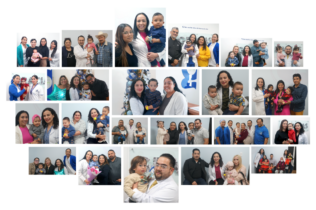
At Ingenes, every success story is a testament to hope, perseverance, and love. That’s why moments like the recent gathering at our Ingenes Tijuana branch are truly priceless—a special day when several Ingenes moms reunited with their babies to capture, through photography, the fulfillment of their dreams. This event holds even greater significance in 2025, as Ingenes celebrates 20 years of making the extraordinary possible. Two decades of helping thousands of women and couples achieve the long-awaited baby they have always dreamed of. A Day to Celebrate Life The Ingenes Tijuana gathering was more than just a photo session; it was a moment of celebration, gratitude, and connection among moms who shared a common journey. For many of them, this event marked the closing of a challenging chapter filled with uncertainty, culminating in the absolute joy of holding their babies in their arms. With heartfelt smiles and tiny, curious eyes discovering the world, each photograph taken that day became a symbol of resilience and perseverance. A Unique Bond Among Ingenes Moms Beyond the photos, this gathering provided an opportunity for moms to share their experiences with assisted reproduction, offering support and empathy to other women who have walked a similar path. It was a powerful reminder that while every fertility story is unique, they all share a deep desire to build a family. Every baby present at the reunion represents the dedication of our team and the trust that each mom placed in Ingenes, an institute that, over the past 20 years, has worked with cutting-edge technology and unwavering commitment to making thousands of families’ dreams come true. More Than Photos, A Legacy of Hope At Ingenes, we understand that every success story serves as inspiration for many others who are still on their journey. These images not only capture beautiful moments but also encourage those still striving to achieve their dream of becoming parents. As we celebrate our 20th anniversary, we reaffirm our commitment to supporting even more people on their path to parenthood, offering the best assisted reproduction solutions and a team of experts who put their heart into every case. Ingenes Tijuana: A Place Where Dreams Come True Strategically located near the border, Ingenes Tijuana offers advanced fertility solutions for those seeking top-quality medical care in assisted reproduction. With a highly skilled team and state-of-the-art technology, this branch has become a trusted destination for patients from both Mexico and the United States. From In Vitro Fertilization (IVF), Artificial Insemination (IUI), Preimplantation Genetic Testing, and Fertility Preservation, to personalized care for each case, Ingenes Tijuana is dedicated to giving every individual the opportunity to build the family they long for. If you, too, dream of having a baby and want to explore all the options available to you, now is the perfect time to take the first step. Our team is ready to listen, answer all your questions, and design the plan that best suits your story. At Ingenes, we celebrate 20 years of making the extraordinary possible.

Actress Lily Collins, best known for her role in the Netflix series Emily in Paris, recently announced via Instagram the birth of her baby, Tove, via surrogacy. Her story has sparked great interest, opening up conversations about this alternative within assisted reproductive treatments. But what exactly is surrogacy? Who can opt for this method, and what medical and legal aspects should be considered? What Is Surrogacy? Surrogacy is an assisted reproductive treatment in which a woman (the surrogate) carries a pregnancy for another person or couple, who will be the baby’s parents. In most cases, In Vitro Fertilization (IVF) is used to create an embryo with the intended parents’ gametes or donor gametes, which is then transferred to the surrogate’s uterus. This process is supported by medical and legal studies to ensure the safety of both the surrogate and the baby. Who Can Opt for Surrogacy? There are various medical and personal reasons why a person or couple may turn to surrogacy. Some of the most common cases include: Each case is evaluated by reproductive medicine specialists to determine if surrogacy is the best option for achieving a successful pregnancy. The Role of In Vitro Fertilization In vitro fertilization (IVF) is an essential part of the surrogacy process. This procedure allows the creation of embryos from the eggs and sperm of the intended parents or, if needed, from donors. The main steps include: Thanks to advancements in assisted reproduction, preimplantation genetic testing can now be performed to select embryos with the highest developmental potential, reducing the risk of chromosomal abnormalities. a significant difference in identifying potential barriers and finding the most effective treatment options. Legal Factors and Ethical Considerations Surrogacy has different legal frameworks depending on the country where it is performed. In Mexico, it is a regulated process permitted under the Procreative Will Law, ensuring the rights of both the intended parents and the surrogate. Legal agreements establish from the outset the rights and responsibilities of each party, including the surrogate’s consent and the baby’s legal protection. Why Is Surrogacy a Topic of Debate? Since announcing that she had her baby through surrogacy, Lily Collins and her husband, Charlie McDowell, have received negative comments about their decision. While surrogacy has allowed thousands of families worldwide to have a baby, it remains a debated topic. Why does surrogacy spark such controversy? The main debates revolve around ethics, legal regulation, and the rights of surrogates. Some argue that surrogacy could be exploited in contexts where surrogates lack sufficient legal or economic protections. However, in countries with clear regulations, such as Mexico, legal agreements and protection measures are in place to ensure the well-being of all parties involved. Despite divided opinions, the reality is that surrogacy remains a valid and necessary option for many individuals who want to become parents but are unable to carry a pregnancy themselves. Another Option for Achieving Pregnancy Lily Collins’ story has brought surrogacy to the forefront of the conversation as one of the available assisted reproduction options. For many people facing difficulties in achieving pregnancy, surrogacy represents a real and safe opportunity to have a baby.At Ingenes, we have reproductive medicine specialists and cutting-edge technology to support those seeking alternatives to fulfill their dream of starting a family. With 20 years of experience and over 50,000 babies born, at Ingenes we know how to make the extraordinary possible. If you want to learn more about assisted reproductive treatments, our experts are available to guide you on your journey towards your baby.

Age is one of the most significant factors affecting a woman’s fertility. As women age, the quantity and quality of their eggs naturally decline, reducing the likelihood of conception and increasing the chances of complications during pregnancy. However, with the right knowledge and proactive measures, women can take control of their reproductive health and plan their maternity effectively. How Age Affects Fertility Fertility is at its peak in a woman’s early 20s and gradually declines after the age of 30. By the time a woman reaches 35, her fertility starts to decline more rapidly, and after 40, conception becomes significantly more challenging. This is due to several factors, including: Despite these challenges, modern reproductive medicine offers various solutions to help women plan for a successful pregnancy at any stage of life. Planning for Maternity: Steps Women Can Take 1. Fertility Preservation Women who wish to delay motherhood due to personal or professional reasons can consider fertility preservation options such as: 2. Regular Fertility Assessments Understanding one’s fertility health is key to making informed decisions. Tests such as: 3. Healthy Lifestyle Choices Lifestyle plays a crucial role in fertility. Women can improve their reproductive health by: 4. Exploring Assisted Reproductive Technologies (ART) For women experiencing age-related fertility challenges, assisted reproductive technologies offer solutions such as: When to Seek Professional Help Women who are actively trying to conceive but facing difficulties should consider consulting a fertility specialist if: Seeking early guidance can make a significant difference in identifying potential barriers and finding the most effective treatment options. Conclusion Age is an important factor in fertility, but with the right planning, knowledge, and medical support, women can take control of their reproductive futures. By exploring fertility preservation, undergoing regular assessments, maintaining a healthy lifestyle, and considering advanced reproductive technologies, women can maximize their chances of achieving a successful pregnancy when the time is right. For personalized fertility guidance and advanced treatment options, Ingenes offers comprehensive fertility solutions to support women in their journey to motherhood. Contact us today to learn more about how we can help you achieve your dream of having a baby.
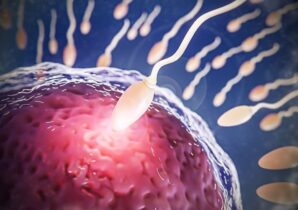
Embryo implantation is a critical step in the assisted reproduction process and a topic that raises many questions for those facing fertility challenges. Even if fertilization and embryo transfer are successful, numerous factors can interfere with implantation, delaying the achievement of pregnancy. In this article, we explore the main factors that affect embryo implantation, potential solutions, and ways to improve the chances of success. What Is Embryo Implantation? Implantation is the process by which an embryo attaches to the uterine wall, a crucial step for pregnancy to progress. This process typically occurs between 6 and 10 days after ovulation or embryo transfer during in vitro fertilization (IVF) treatments. Successful implantation requires: Main Factors Affecting Embryo Implantation 1. Embryo Quality A healthy embryo has a higher likelihood of implanting and developing into a pregnancy. Embryo quality depends on: Solution: 2. Endometrial Receptivity The endometrium must have an adequate thickness (ideally between 7 and 10 mm) and be in a receptive state for the embryo to attach. Factors affecting endometrial receptivity include: Solution: 3. Hormonal Balance Hormones play a key role in preparing the endometrium for implantation. Hormonal issues, such as low progesterone levels or thyroid imbalances, can interfere with this process. Solution: 4. Immunological Factors The immune system plays a delicate role during implantation. In some cases, a woman’s immune system may attack the embryo or hinder its development. Solution: 5. Lifestyle and General Health Lifestyle factors can negatively influence embryo implantation, such as: Solution: 6. Male Factors Although implantation occurs in the woman’s body, sperm quality also influences early embryo development. Solution: How to Improve the Chances of Success If you have faced difficulties with implantation, there are steps you can take to improve your chances of success: Conclusion Embryo implantation is a complex process influenced by various factors. Identifying and addressing the underlying causes can be the key to achieving pregnancy. At Pharma2Help, we are committed to your well-being, offering medications, supplements, and personalized support to optimize every step of your treatment. If you’re facing difficulties with embryo implantation, contact us today. Together, we’ll find the solutions you need to achieve your dream of building a family.

In vitro fertilization (IVF) has revolutionized how female couples can build their families. Thanks to advancements in reproductive medicine, options for same-sex couples are increasingly accessible and personalized, allowing both women to actively participate in the process of conceiving and raising their child. This article explores the options, procedures, and considerations for female couples interested in IVF. What Is In Vitro Fertilization (IVF)? In vitro fertilization (IVF) is an assisted reproductive technology (ART) that involves fertilizing an egg with sperm in a laboratory to create an embryo, which is then transferred to the uterus of the future mother. This procedure is widely used by same-sex couples as it provides the flexibility to decide how both partners can actively participate in the conception process. IVF Options for Female Couples There are various ways female couples can undergo IVF, depending on their personal preferences, medical needs, and family goals. The main options include: 1. IVF with Sperm Donation This is the most common and straightforward option. A sperm donor provides the genetic material needed to fertilize the eggs from one of the partners. Procedure: Advantages: 2. ROPA Method (Reception of Oocytes from Partner) The ROPA method allows both women to actively participate in the conception process. One partner provides the eggs, while the other carries the pregnancy. Procedure: Advantages: 3. IVF with Donated Eggs and Sperm In some cases, it may be necessary to use both egg and sperm donations. This option is ideal for couples where neither partner can use their own eggs or if they choose to use a donor egg to minimize genetic risks. Procedure: Advantage: Viable option for couples with medical limitations. Steps in the IVF Process IVF involves several stages, each designed to maximize the chances of success. The main steps are: Benefits of IVF for Female Couples IVF offers numerous benefits for female couples, including: Conclusion In vitro fertilization has opened a world of possibilities for female couples who wish to build a family. With options like IVF with sperm donation, the ROPA method, and egg donation, each couple can find the path that best suits their needs and dreams. At Ingenes, we understand the importance of providing a personalized, compassionate, and professional approach for every patient. Our team of experts is here to guide you through every step of the process, ensuring you have all the tools needed to achieve your motherhood goals. If you’re considering IVF as an option to build your family, don’t hesitate to reach out. We’re here to support you on your journey to motherhood and help make your dream of having a baby a reality.

In vitro fertilization (IVF) has revolutionized reproductive medicine, allowing millions of couples around the world to achieve their dream of having a baby. However, not all embryos lead to a successful pregnancy. Chromosomal abnormalities are one of the leading causes of implantation failure, miscarriage, and genetic diseases. This is where Preimplantation Genetic Testing for Aneuploidies (PGT-A) comes into play, enhancing IVF success rates and providing patients with greater peace of mind throughout the process.In this article, we will explore in detail what PGT-A is, how it works, its benefits, and why it can be a crucial tool in fertility treatments. What is Preimplantation Genetic Testing (PGT-A)? PGT-A is an advanced embryo screening technique performed during the IVF process. Its primary goal is to identify chromosomal abnormalities (aneuploidies) in embryos before they are transferred to the uterus. This allows the selection of embryos with the correct number of chromosomes, increasing the chances of achieving a successful pregnancy and reducing the risk of miscarriage.The human body has 23 pairs of chromosomes, and any alteration in this number can lead to embryo development failure. For example, Down syndrome occurs when there is an extra copy of chromosome 21 (trisomy 21). With PGT-A, specialists can detect these abnormalities before implantation, offering an invaluable opportunity to prevent genetic diseases. How Does PGT-A Work? The PGT-A process is integrated with IVF and carried out in several stages: Benefits of PGT-A in IVF PGT-A offers multiple benefits that can significantly impact fertility treatment outcomes: Who Can Benefit from PGT-A? Although PGT-A is not mandatory for all IVF cycles, certain patients can greatly benefit from this procedure: Carriers of genetic diseases – Couples with a family history of genetic conditions can benefit from selecting healthy embryos through PGT-A. PGT-A vs. Other Types of Genetic Testing PGT-A should not be confused with other types of preimplantation genetic testing: PGT-SR (Preimplantation Genetic Testing for Structural Rearrangements): Evaluates issues in chromosomal structure, such as inversions or translocations.PGT-A focuses exclusively on detecting aneuploidies, helping select chromosomally normal embryos. Conclusion Preimplantation Genetic Testing (PGT-A) has transformed in vitro fertilization, providing patients with greater opportunities for success and reducing risks associated with chromosomal abnormalities. For many couples, it represents a key tool in their journey toward parenthood.If you are considering IVF treatment, speaking with your fertility specialist about PGT-A could be the first step toward a successful and healthy pregnancy.

Infertility affects approximately 1 in 6 couples globally, making it a far more common challenge than many might think. Despite its prevalence, infertility remains a sensitive and often misunderstood topic. Understanding the potential causes of infertility can help alleviate some of the anxiety surrounding the process, while also providing a clearer path forward. This article will outline some of the most common infertility diagnoses for both men and women, explaining their causes, symptoms, and available treatment options. Infertility in Women Infertility in women can stem from a variety of conditions that impact ovulation, egg quality, or the reproductive organs. Below are some of the most frequently diagnosed causes: 1. Polycystic Ovary Syndrome (PCOS) PCOS is one of the most common causes of infertility, affecting approximately 1 in 10 women of reproductive age. This hormonal disorder disrupts normal ovulation, often resulting in irregular or absent menstrual cycles. Additionally, women with PCOS may develop small cysts on their ovaries, although not all women with the condition will experience this symptom.Symptoms: Why It Causes Infertility:PCOS leads to an overproduction of androgens (male hormones), which interfere with the development and release of eggs during ovulation. Without regular ovulation, conception becomes difficult. Treatment Options: 2. Endometriosis Endometriosis is a condition where tissue similar to the lining of the uterus (endometrium) grows outside the uterus, often on the ovaries, fallopian tubes, and pelvic lining. This condition affects about 10% of women globally and can cause pain, inflammation, and scar tissue, all of which may interfere with fertility.Symptoms: Why It Causes Infertility:Endometrial tissue can block the fallopian tubes, preventing the egg and sperm from meeting. In severe cases, it can also affect the ovaries, leading to the formation of cysts that impair egg quality. Treatment Options: 3. Diminished Ovarian Reserve (DOR) DOR refers to a lower number or quality of eggs in the ovaries, which naturally occurs with age but can also result from genetic factors, medical conditions, or previous surgeries. Symptoms: Why It Causes Infertility:Fewer eggs mean fewer chances for successful fertilization and implantation. Egg quality is also critical, as chromosomal abnormalities increase with age. Treatment Options: Infertility in Men Male infertility accounts for nearly 40-50% of all infertility cases. The most common causes involve issues with sperm production, function, or delivery. 1. Low Sperm Count (Oligospermia) Oligospermia refers to a sperm count below the normal range, which is typically defined as fewer than 15 million sperm per milliliter of semen. Causes: Treatment Options: 2. Poor Sperm Motility (Asthenospermia) Even if sperm count is normal, poor motility (movement) can prevent sperm from reaching and fertilizing the egg. Causes: Treatment Options: 3. Genetic Abnormalities Genetic factors can impair sperm production, leading to infertility. Treatment Options: Unexplained Infertility Sometimes, despite thorough testing, no clear cause of infertility is found. This accounts for 10-15% of infertility cases. Treatment Options: When to Seek Help Empowering Your Journey Infertility is a challenge, but with the right support and medical advances, parenthood is often possible. Taking the first step toward diagnosis and treatment is key to finding the best path forward.

The possibility of choosing your baby’s gender has sparked interest, curiosity, and, in some cases, controversy worldwide. Thanks In Vitro Fertilization (IVF) advancements and genetic testing, this option is now a medical reality for many families. At Ingenes, the Eligender Program provides an innovative and safe solution that allows families to plan their family composition with precision and confidence. But how does this process work? Is it safe? Is it ethical? In this article, we’ll explore all aspects of gender selection through IVF, including how this procedure can help fulfill your dream of creating the family you’ve always wanted. How Does Gender Selection Work with IVF? The Eligender process involves several key steps: Benefits of Eligender Eligender offers more than just the option to choose your baby’s gender: Who Can Benefit from Eligender? Gender selection through Eligender may be suitable for various situations: Costs and Accessibility The cost of Eligender varies depending on each patient’s specific needs and required treatments. It includes genetic analysis, In Vitro Fertilization, and embryo transfer. While it represents a significant investment, many families find the benefits well worth the expense. At Ingenes, we offer personalized consultations to help you understand all costs and available financing options, ensuring the process is accessible and transparent. Frequently Asked Questions About Eligender Conclusion The ability to choose your baby’s gender through IVF and Eligender is a groundbreaking option for families looking to plan their family composition more specifically. This procedure combines medical advancements, cutting-edge technology, and a personalized approach to help you create the family you’ve always dreamed of. If you’re considering this procedure, Ingenes is here to guide you every step of the way. Contact us today to learn more about Eligender and how we can help make your family dream a reality.

The new Mexican film “Una Pequeña Confusión” presents an improbable yet concerning scenario: the accidental swapping of embryos or genetic material between couples during an artificial insemination (AI) procedure. While this plot makes for an engaging story on screen, such cases are nearly impossible in institutes like Ingenes, thanks to strict protocols and safety measures that ensure every procedure is precise and secure. In this blog, we’ll explain how artificial insemination (AI) and in vitro fertilization (IVF) work, and the mechanisms in place to guarantee accuracy at every step. What Is Artificial Insemination and How Does It Work? Artificial insemination (AI) is one of the simplest assisted reproduction treatments, involving the placement of selected sperm directly into the woman’s uterus to facilitate fertilization. This procedure is conducted under strict controls and with highly precise tools to avoid any kind of error. The main steps include: Although less complex than in vitro fertilization (IVF), artificial insemination at Ingenes adheres to the same strict standards of safety and precision. What Is In Vitro Fertilization and How Does It Work? In vitro fertilization (IVF) is an advanced assisted reproduction procedure that involves fertilizing an egg with sperm in a controlled laboratory environment. This process requires highly technical and delicate steps: Each of these steps demands a high level of precision, and at Ingenes, advanced systems ensure there is no room for error. Who Benefits from Artificial Insemination and Who Needs IVF? Not all assisted reproduction treatments are suitable for everyone. At Ingenes, every patient undergoes a personalized evaluation to determine the best option for their situation. Here’s a breakdown of the main differences between artificial insemination (AI) and in vitro fertilization (IVF), and who can benefit most from each: Who Can Benefit from Artificial Insemination? AI is ideal for patients with mild reproductive issues who meet certain medical criteria. It is generally recommended in cases such as: AI is less invasive and more affordable than IVF, making it a preferred initial option for many patients. However, its success depends on factors such as age and sperm quality. Who Needs In Vitro Fertilization (IVF)? IVF is a more advanced treatment often recommended for patients facing more complex fertility challenges, including: IVF is also ideal for those seeking to maximize success rates in a single cycle, as it allows for complete control over the fertilization and embryo development process. Why Is a Mix-Up Impossible at Ingenes? Whether during artificial insemination or in vitro fertilization, Ingenes has protocols in place to prevent any type of error. Here’s how we ensure precision: Ingenes: A Name You Can Trust At Ingenes, we have perfected a system that combines strict safety protocols, advanced technology, and a highly skilled team to ensure successful results. Our key differentiators include: Frequently Asked Questions Can Human Error Occur in the Laboratory?While human error is a possibility in any process, at Ingenes, we minimize this risk with double verification systems, traceability technology, and constant expert supervision. What If I Have Questions During the Process?Our team is always available to answer your questions and explain every step of the treatment. What Sets Ingenes Apart from Other IVF Labs?Our combination of experience, technology, and strict protocols ensures that your treatment is safe, efficient, and transparent. A Movie Plot, Not Reality “Una Pequeña Confusión” serves as a reminder of the importance of choosing an assisted reproduction institute that prioritizes safety and precision. At Ingenes, an error like the one depicted in the movie is impossible thanks to our advanced systems and commitment to excellence. Choosing Ingenes means choosing safety, trust, and results. With our strict protocols and cutting-edge technology, you can rest assured that every step of your treatment is designed to provide peace of mind and success. If you have questions about our artificial insemination or in vitro fertilization processes or want to learn more about our services, contact us. We’re here to help you achieve your dream of having a baby with confidence and security.

Asherman’s Syndrome is a rare condition that profoundly impacts women’s reproductive health, causing infertility and difficulties in achieving a successful pregnancy. However, thanks to advancements in reproductive medicine, Ingenes has developed an innovative treatment called Endogen, which offers a safe, efficient, and accessible solution to regenerate the endometrium and restore fertility. With significantly higher success rates and a less invasive approach, Endogen, with research led by Dr. Dinorah Hernández, represents the forefront of endometrial regeneration for patients with this condition. Discover how this technology can make a difference in your journey toward a successful pregnancy. What is Asherman’s Syndrome? Asherman’s Syndrome is an underdiagnosed condition considered a rare disease (orphan disease) caused by trauma to the endometrium. This damage creates intrauterine adhesions that result in an atrophic endometrium, unable to develop properly for embryo implantation and pregnancy. It is characterized by the formation of scar tissue within the uterus, affecting its structure and functionality. This disorder can lead to secondary infertility due to recurrent miscarriages and difficulty maintaining a pregnancy. How is it acquired? Asherman’s Syndrome is an acquired condition, generally caused by: Although it is not hereditary, recent research suggests a possible genetic predisposition in some women to develop intrauterine adhesions. Causes and Symptoms How to suspect someone has Asherman’s Syndrome? Common symptoms include: Additionally, the syndrome can occur suddenly after a miscarriage, uterine surgery, or infection. Diagnosis and Standard Treatment Diagnosis Diagnosis requires advanced tools such as: Standard Treatment As a rare disease, few treatment options exist. The primary goal of conventional treatment is only to remove scar tissue and restore the uterus’s shape. This includes: However, the endometrium often remains damaged, and many patients face recurrent adhesions. In severe cases, a thin endometrium (<5 mm) makes achieving pregnancy extremely difficult. Endogen: Innovation from Ingenes In cases where standard treatment is not enough, Ingenes offers Endogen, an innovative approach that regenerates endometrial tissue and restores its functionality. How does Endogen work? The uterus contains a natural niche of mesenchymal stem cells (EnMSC) that allow monthly regeneration of the endometrium. In Asherman’s Syndrome, this niche is destroyed, leaving the endometrium unable to respond to hormonal stimuli or sustain a pregnancy. Endogen replenishes these stem cells, regenerating endometrial tissue to achieve optimal thickness (>7 mm) and ideal functionality. Advantages of Endogen Over Other Treatments Unlike other experimental approaches requiring complex surgical procedures and extended stays abroad, Endogen is: Why choose Endogen at Ingenes? Conclusion Asherman’s Syndrome no longer needs to be an insurmountable obstacle. With the development of Endogen, Ingenes leads innovation in reproductive medicine, offering an advanced, safe, and effective solution. This treatment regenerates the endometrium and significantly increases the chances of achieving a successful pregnancy. If you are looking for a reliable and scientifically supported alternative to treat Asherman’s Syndrome, contact us today. At Ingenes, we are ready to support you in this process with cutting-edge technology and the expertise of professionals like biotechnologist and scientist Dinorah Hernández, who lead this revolution in reproductive health.

At Ingenes, we have spent nearly two decades helping people worldwide overcome fertility challenges and achieve their dream of having a baby. As part of our commitment to comprehensive solutions, we created Surrogate Mexico, a reliable, ethical, and all-inclusive service for those considering surrogacy as a path to family building. Supported by Ingenes’ expertise in fertility, genetics, and assisted reproduction, Surrogate Mexico reflects our shared mission: turning the dream of parenthood into reality through safe, transparent, and life-changing processes. What is Surrogate Mexico? Surrogate Mexico is Ingenes’ dedicated branch specializing in gestational surrogacy. It is not just an additional service but an extension of our expertise and dedication to providing advanced solutions for those looking to expand their families.With a comprehensive approach that combines cutting-edge technology, robust medical support, and compassionate care, Surrogate Mexico aims to provide peace of mind and confidence at every stage of the journey. Who is Surrogate Mexico for? Surrogacy is an ideal solution for: At Surrogate Mexico, we approach each case with personalized care, offering tailored solutions to meet the unique needs and circumstances of every individual. Benefits of Surrogate Mexico and Ingenes 1. Experience Backed by IngenesWith nearly 20 years of experience and over 50,000 babies born, Ingenes has established itself as the largest fertility and assisted reproduction institute in Latin America. This legacy is the foundation upon which Surrogate Mexico delivers a reliable, ethical, and successful process. 2. Comprehensive SupportAt Surrogate Mexico, we guide you every step of the way. Our team of specialists manages all medical, legal, and logistical aspects, ensuring both you and the surrogate feel supported throughout the journey.Additionally, we provide an exclusive wellness program for surrogates, ensuring they receive medical, emotional, and logistical care during the process. 3. Legal and Financial SecurityTransparency and protection are fundamental pillars at Surrogate Mexico. Our team handles: 4. Shorter Waiting TimesUnlike other countries such as the United States or Canada, Surrogate Mexico offers significantly shorter waiting times to match you with the ideal surrogate. This allows you to move forward quickly without compromising the process’s quality or safety. 5. Mexico: A Leading Medical Tourism Destination Mexico is recognized as a top medical tourism destination due to its high-quality care, renowned specialists, and affordable costs. By choosing Surrogate Mexico, you also experience the hospitality and warmth that defines our country, in a safe and modern environment. Is This Option Right for You? Choosing surrogacy is a significant decision. At Surrogate Mexico and Ingenes, we are dedicated to addressing your questions and providing you with a clear and trustworthy path toward your dream of building a family. With Surrogate Mexico, you are choosing a solution backed by decades of experience, innovation, and care. Contact us today and take the first step toward the family you’ve always dreamed of!

A revolutionary approach in assisted reproduction, IVF MOREⓇ (Magnetic Ovulatory Restoration) offers new possibilities for individuals facing fertility challenges, particularly women over 40 who wish to become mothers. This exclusive technique, developed by Instituto Ingenes in partnership with Regenera, uses advanced ovarian restoration to improve egg quality, creating a new path to pregnancy without the need for an egg donor.Backed by over 19 years of Ingenes’ experience and Regenera’s cutting-edge technology, IVF MOREⓇ integrates ovarian regeneration with advanced assisted reproduction techniques, providing renewed hope to women dreaming of having a baby with their own eggs. The Impact of Age on Fertility Age is one of the most critical factors influencing female fertility, as both the quality and quantity of eggs decline significantly over time. According to the World Health Organization (WHO), this reduction becomes notable after the age of 35 and accelerates after 40. This decline not only affects the likelihood of conception but also increases the risk of genetic abnormalities and miscarriages. Research from the Society for Assisted Reproductive Technology (SART) reveals that only 10% of women aged 41–42 can achieve a viable embryo through traditional In Vitro Fertilization (IVF). This biological challenge is primarily due to reduced nutrients and energy within aging eggs, which are necessary for proper division and embryo development. Conditions like Polycystic Ovary Syndrome (PCOS) and endometriosis also impact egg quality. PCOS disrupts hormonal balance, preventing eggs from maturing, while endometriosis causes inflammation and cysts, compromising egg development. IVF MOREⓇ emerges as a transformative solution by offering a unique opportunity to restore egg quality, even for women over 40 or those with specific medical conditions, significantly increasing their chances of achieving a successful pregnancy. What is IVF MOREⓇ? IVF MOREⓇ is an exclusive technique developed by Regenera and offered by Ingenes that regenerates and optimizes a woman’s own eggs to improve their quality. It is specifically designed for women facing challenges like advanced age, endometriosis, PCOS, or previous unsuccessful fertility treatments. IVF MOREⓇ revolutionizes reproductive medicine by combining advanced technologies such as micromanipulation and magnetic fields to enhance the core components of eggs, optimizing their ability to divide and develop viable embryos. This innovative approach provides an alternative for women who previously relied on egg donation, allowing them to conceive using their own genetic material. How Does IVF MOREⓇ Work? IVF MOREⓇ is a carefully designed process that addresses each stage of assisted reproduction. Here’s how it works: Who is IVF MOREⓇ for? IVF MOREⓇ is designed for women facing specific challenges in their journey to motherhood, particularly those with issues related to egg quality. It is ideal for: Why Choose IVF MOREⓇ? IVF MOREⓇ is a groundbreaking advancement in reproductive medicine, providing women the opportunity to regenerate their own eggs for use in fertility treatments. This reduces reliance on egg donors and allows patients to maintain their genetic contribution during conception. Expected Outcomes with IVF MOREⓇ The primary goal of IVF MOREⓇ is to give women a real chance at achieving a successful pregnancy using their own eggs. By combining ovarian restoration with advanced technology, IVF MOREⓇ offers: Conclusion: A New Hope with IVF MOREⓇ Fertility journeys are unique for every woman, and IVF MOREⓇ opens new doors for those who once thought their dream of having a child with their own eggs was out of reach. This exclusive technique combines science, technology, and personalized care to offer innovative solutions to complex fertility challenges. If you’re exploring options to achieve pregnancy using your own eggs and need a solution that goes beyond traditional methods, IVF MOREⓇ could be the breakthrough you’ve been looking for. Contact us today for a personalized consultation and take the first step toward making your dream a reality.
Permiso Cofepris: 133300201A1156
Dr. Felipe Camargo Cédula Profesional SEP: 4452501
©Todos los derechos reservados 2024. Instituto Ingenes, Fertilidad & Genética